Discover Superhero Ethics
Superhero Ethics

303 Episodes
Reverse
Matthew Fox and Riki Hayashi are joined by Will Freeland and Steve Stormoen from the Hype Is My Superpower podcast to dive deep into the complex themes and character arcs of X-Men ‘97. The animated series revival has reignited discussions about tolerance, activism, and the challenges of retiring from the superhero life.The conversation kicks off with an exploration of the idea of superheroes retiring, focusing on Cyclops and Jean Grey's attempt to take a break from the X-Men to raise their child. The group discusses the real-world parallels to activist burnout and the importance of self-care in the face of never-ending battles for justice.The discussion then shifts to the show's handling of love triangles and whether they serve the story or feel like lazy writing. The hosts and guests also debate the line between fan service and telling an original story, questioning how much can be changed before it no longer feels like an authentic X-Men tale.Perhaps the most thought-provoking segment of the episode centers around the meaning of the phrase "tolerance is extinction." The group explores the differences between mere tolerance and true belonging, and how this relates to the struggle for mutant rights in the X-Men universe.Other topics covered in this engaging conversation include:Is Morph in love with Wolverine, and what does this mean for the character's gender identity?How accessible is X-Men ‘97 to newcomers, and is it okay for a show to cater primarily to long-time fans?What role does Professor X's commitment to nonviolence play in the story, and how does it compare to Magneto's more radical approach?Should the X-Men allow characters like Cyclops to retire and pursue their personal dreams?We’ve started the conversation. Now we want to hear from you!Want to continue the discussion with us? Agree or disagree with what we talked about, or add your own thoughts? We’ve got options for you!Email: ✉️ Matthew@TheEthicalPanda.com𝕏: EthicalPanda77Facebook: TheEthicalPandaInstagram: TheEthicalPandaTikTok: TheEthicalPandaVisit Superhero Ethics on TruStory.FM for more information, contact info, and more!Want to support the podcast AND get ad-free episodes and bonus content? Become a supporting member of The Ethical Panda Podcasts! Members get access to bonus content with (almost) every ad-free episode of this and my other podcast, Star Wars Universe Podcast! Plus, you'll be showing your support for this show, and all things Ethical Panda. Visit our home on TruStory FM to learn more and kickstart your subscription today!Read more about the results of the WGA strike here.Read more about the results of the SAG-AFTRA strike here.
Host Matthew Fox dives deep into the world of Dune: Part Two with special guest Professor Matthew Kapell, an expert in anthropology, mythology, and religious studies. Together, they explore the complex themes of religion, destiny, and the power of myth in shaping the identities of individuals and entire civilizations, and how that is explored in the novel, and the second movie of Dune.Key Points:What role does mythology play in the Fremen religion and their sense of identity?How does the movie Dune: Part Two critique the idea of the "chosen one" and charismatic leaders?In what ways does Dune draw inspiration from real-world history and religions, especially Sunni Islam and the Caucasus region?What do the actions of the Bene Gesserit reveal about the use of mythology and religion as tools of control and manipulation?Throughout the episode, Professor Kapell shares his deep knowledge of the Dune universe, highlighting the intricate tapestry of religious and mythological influences that author Frank Herbert wove into his iconic sci-fi series. From the Fremen's Zensunni religion to the Bene Gesserit's calculated seeding of prophecies, Dune: Part Two offers a thought-provoking commentary on the power of belief and the dangers of blindly following charismatic figures.Other topics covered include:The influence of the book The Sabres of Paradise by Lesley Blanch on Dune. (Use that link to shop from an independent bookstore AND help support this podcast.)Princess Irulan's expanded role in Dune: Part TwoThe symbolism of Chani riding a sandworm at the end of the filmComparisons to other sci-fi franchises like Star Wars and Star TrekMember Bonus Content: Hopes and predictions for Dune: Part Three and future adaptationsWhether you're a die-hard Dune fan or simply fascinated by the intersection of science fiction, religion, and mythology, this episode of Superhero Ethics is a must-listen. Join Matthew Fox and Professor Matthew Kapell as they navigate the complex and captivating world of Dune, uncovering the deeper meanings behind one of the most influential science fiction stories of all time. We’ve started the conversation. Now we want to hear from you!Want to continue the discussion with us? Agree or disagree with what we talked about, or add your own thoughts? We’ve got options for you!Email: ✉️ Matthew@TheEthicalPanda.com𝕏: EthicalPanda77Facebook: TheEthicalPandaInstagram: TheEthicalPandaTikTok: TheEthicalPandaVisit Superhero Ethics on TruStory.FM for more information, contact info, and more!Want to support the podcast AND get ad-free episodes and bonus content? Become a supporting member of The Ethical Panda Podcasts! Members get access to bonus content with (almost) every ad-free episode of this and my other podcast, Star Wars Universe Podcast! Plus, you'll be showing your support for this show, and all things Ethical Panda. Visit our home on TruStory FM to learn more and kickstart your subscription today!Read more about the results of the WGA strike here.Read more about the results of the SAG-AFTRA strike here.
Is Tolerance Extinction? Was Magneto Right?Matthew Fox and Riki Hayashi dive into the complex moral questions raised by the new Marvel animated series X-Men ‘97 on Disney+. The show, a continuation of the beloved 90s X-Men cartoon, explores themes of tolerance, assimilation, and the fight for mutant rights in a world that fears and oppresses them. The central question debated by Matthew and Riki is whether Magneto, the mutant extremist who believes coexistence with humans is impossible, was actually right all along. Is Professor X's dream of peaceful integration naive and ultimately doomed? Is violent resistance the only path forward for mutant liberation? The philosophies of the two leaders are compared to real-world civil rights movements and the tensions between assimilationist and separatist approaches.Other key questions and topics covered include:Does the mutant island nation of Genosha represent empowering self-determination or harmful segregation? How much should a sequel series cater to fans of the original vs. making itself accessible to new viewers? The importance of authentic representation, as seen with casting Jubilee with an Asian-American voice actressParallels between anti-mutant prejudice and real-world discrimination against LGBTQ people, immigrants, and the disabledFrom debating political theory to nerding out over continuity references, Matthew and Riki cover a lot of ground in this deep dive into a surprisingly sophisticated superhero story. Whether you're a die-hard X-Men fan or just interested in the social commentary of the Marvel universe, this episode of Superhero Ethics will give you a lot to think about. Be sure to tune in and join the conversation! We’ve started the conversation. Now we want to hear from you!Want to continue the discussion with us? Agree or disagree with what we talked about, or add your own thoughts? We’ve got options for you!Email: ✉️ Matthew@TheEthicalPanda.com𝕏: EthicalPanda77Facebook: TheEthicalPandaInstagram: TheEthicalPandaTikTok: TheEthicalPandaVisit Superhero Ethics on TruStory.FM for more information, contact info, and more!Want to support the podcast AND get ad-free episodes and bonus content? Become a supporting member of The Ethical Panda Podcasts! Members get access to bonus content with (almost) every ad-free episode of this and my other podcast, Star Wars Universe Podcast! Plus, you'll be showing your support for this show, and all things Ethical Panda. Visit our home on TruStory FM to learn more and kickstart your subscription today!Read more about the results of the WGA strike here.Read more about the results of the SAG-AFTRA strike here.
What Makes Anime ‘Anime’? Exploring the Unique Elements of Japanese AnimationIn this episode of Superhero Ethics, hosts Matthew Fox and Riki Hayashi dive deep into the world of anime, exploring what sets this beloved Japanese animation style apart from its Western counterparts. As an American with Japanese roots, Riki offers unique insights into the cultural and stylistic elements that define anime, sparking a thought-provoking discussion about the genre's global appeal.Key Points:What is the true definition of anime? Is it simply animation from Japan, or does it encompass specific styles and tropes that are uniquely Japanese?How has growing up with anime influenced Riki's understanding of himself as a fan of Japanese culture?Can non-Japanese artists and studios create authentic anime, or is there an intangible element that can only be captured by those immersed in Japanese culture?Other Topics Covered:The evolution of anime's accessibility and popularity in the United StatesThe influence of anime on American animated series like Avatar: The Last Airbender and The Legend of KorraIconic anime movies and series, such as Akira, Dragon Ball, and Cowboy BebopThe differences in storytelling and character development between anime and American comic book adaptationsThe role of anime in exploring mature themes and the genre's appeal to a teenage and adult audienceWe’ve started the conversation. Now we want to hear from you!Want to continue the discussion with us? Agree or disagree with what we talked about, or add your own thoughts? We’ve got options for you!Email: ✉️ Matthew@TheEthicalPanda.com𝕏: EthicalPanda77Facebook: TheEthicalPandaInstagram: TheEthicalPandaTikTok: TheEthicalPandaVisit Superhero Ethics on TruStory.FM for more information, contact info, and more!Want to support the podcast AND get ad-free episodes and bonus content? Become a supporting member of The Ethical Panda Podcasts! Members get access to bonus content with (almost) every ad-free episode of this and my other podcast, Star Wars Universe Podcast! Plus, you'll be showing your support for this show, and all things Ethical Panda. Visit our home on TruStory FM to learn more and kickstart your subscription today!Read more about the results of the WGA strike here.Read more about the results of the SAG-AFTRA strike here.
Do superheroes promote fascist ideology? In this episode of Superhero Ethics, hosts Matthew Fox and Riki Hayashi dive deep into an interview from Screen Rant with renowned comic book writer Alan Moore, who argues that the concept of superheroes contains elements of fascism. Join us as we explore the complex relationship between superhero culture, authoritarianism, and the impact these iconic characters have on our society.Key Points:Is there an inherent problem with the fantasy of extraordinary individuals with superhuman abilities solving the world's problems? We discuss Moore's critique that this longing for a "quick fix" through superpowered beings is problematic and unrealistic.How does the nostalgia often associated with superheroes and their stories play into fascist ideology? We examine the role of romanticizing the past and the persecution of outgroups in both superhero narratives and fascist movements.Can the iconography of superheroes be co-opted by real-world fascists? We analyze the fine line between depicting villainous "superhero-like" characters and inadvertently glorifying their actions.Has the evolution of superhero stories from children's entertainment to adult-oriented content contributed to a misinterpretation of their themes and messages? We explore the impact of this shift on audience perception and understanding.Other topics covered:Defining fascism and its differences from authoritarianismThe immigrant experience in Superman's origin storyThe role of secret identities and "passing" in superhero narrativesExamining Ozymandias as a villain in Watchmen and the moral dilemma he presentsConclusion: Alan Moore's critique of superheroes and their potential links to fascist ideology raises important questions about the power of popular culture in shaping our societal values. While superhero stories can inspire hope and heroism, it is crucial to remain mindful of the messages they convey and their potential to be misinterpreted or exploited. As fans and creators, we must engage in critical discussions about the complexities of these beloved characters and their impact on our world.Here is the interview on which our episode is based. We’ve started the conversation. Now we want to hear from you!Want to continue the discussion with us? Agree or disagree with what we talked about, or add your own thoughts? We’ve got options for you!Email: ✉️ Matthew@TheEthicalPanda.com𝕏: EthicalPanda77Facebook: TheEthicalPandaInstagram: TheEthicalPandaTikTok: TheEthicalPandaVisit Superhero Ethics on TruStory.FM for more information, contact info, and more!Want to support the podcast AND get ad-free episodes and bonus content? Become a supporting member of The Ethical Panda Podcasts! Members get access to bonus content with (almost) every ad-free episode of this and my other podcast, Star Wars Universe Podcast! Plus, you'll be showing your support for this show, and all things Ethical Panda. Visit our home on TruStory FM to learn more and kickstart your subscription today!Read more about the results of the WGA strike here.Read more about the results of the SAG-AFTRA strike here.
Was Yoda right when he told Luke, "The greatest teacher, failure is," in Star Wars: Episode VIII - The Last Jedi? What did he mean, and how does this idea play out in the rest of the movie?Riki and Matthew dive into this question, asking just what Yoda means. Is he referring to his own failures, and those of the Jedi? How does this fit with his idea of "do, or do not. There is no try." Who else fails in this movie, and what do they learn from it, and which character's arcs are executed well or poorly? We’ve started the conversation. Now we want to hear from you!Want to continue the discussion with us? Agree or disagree with what we talked about, or add your own thoughts? We’ve got options for you!Email: ✉️ Matthew@TheEthicalPanda.com𝕏: EthicalPanda77Facebook: TheEthicalPandaInstagram: TheEthicalPandaTikTok: TheEthicalPandaVisit Superhero Ethics on TruStory.FM for more information, contact info, and more!Want to support the podcast AND get ad-free episodes and bonus content? Become a supporting member of The Ethical Panda Podcasts! Members get access to bonus content with (almost) every ad-free episode of this and my other podcast, Star Wars Universe Podcast! Plus, you'll be showing your support for this show, and all things Ethical Panda. Visit our home on TruStory FM to learn more and kickstart your subscription today!Read more about the results of the WGA strike here.Read more about the results of the SAG-AFTRA strike here.
Matthew Fox and Riki Hayashi dive into the question of whether a pirate can truly be a hero. Using the popular anime, manga, and live-action series One Piece as a focal point, they examine the complex nature of piracy and its relationship to morality.The discussion begins by defining the term "pirate" in both English and Japanese contexts, considering its historical and cultural implications. Matthew and Riki then explore the character of Monkey D. Luffy, the protagonist of One Piece, and his unique brand of piracy that challenges traditional notions of right and wrong.Can Luffy's altruistic goals and strong moral compass justify his actions as a pirate? Is he redefining what it means to be a pirate, or is his behavior ultimately misguided? The hosts engage in a lively debate, drawing parallels to other fictional characters like Captain America, Captain Jack Sparrow, and Batman.Key topics covered in this episode include:The definition of piracy in various cultural contextsLuffy's moral code and its implications for his actionsThe role of the World Government in One Piece and its impact on the perception of piratesComparisons between Luffy and other fictional heroes like Captain America and BatmanThe philosophical question of whether an individual's moral compass can supersede the lawThroughout the discussion, Matthew and Riki offer insightful perspectives on the nature of heroism and the complexities of navigating a world where the lines between right and wrong are often blurred. They also touch upon the broader themes of personal freedom, the pursuit of justice, and the potential pitfalls of unbridled confidence.Whether you're a die-hard One Piece fan or simply fascinated by the ethical dilemmas posed by fictional characters, this episode of Superhero Ethics is sure to leave you with plenty of food for thought. Join Matthew and Riki as they grapple with the question: Can a pirate truly be a hero?The articles mentioned in this episode were:AsianStudies.org Some Notes on “Japanese Pirates” Frank L ChanceCrunchy Roll - Freedom, Heroism and the Definition of “Pirate” in One Piece, by Sean AitchisonKaizoku is the Japanese word for ‘pirate’, explained by Masaki Mori From the Kanji for Sea and BanditWe’ve started the conversation. Now we want to hear from you!Want to continue the discussion with us? Agree or disagree with what we talked about, or add your own thoughts? We’ve got options for you!Email: ✉️ Matthew@TheEthicalPanda.com𝕏: EthicalPanda77Facebook: TheEthicalPandaInstagram: TheEthicalPandaTikTok: TheEthicalPandaVisit Superhero Ethics on TruStory.FM for more information, contact info, and more!Want to support the podcast AND get ad-free episodes and bonus content? Become a supporting member of The Ethical Panda Podcasts! Members get access to bonus content with (almost) every ad-free episode of this and my other podcast, Star Wars Universe Podcast! Plus, you'll be showing your support for this show, and all things Ethical Panda. Visit our home on TruStory FM to learn more and kickstart your subscription today!Read more about the results of the WGA strike here.Read more about the results of the SAG-AFTRA strike here.
We welcome Riki Hayashi as the new co-host alongside Matthew Fox. Riki brings a wealth of knowledge and fresh perspectives to the show, promising engaging discussions on fandom ethics, media analysis, and much more. Join Matthew and Riki as they unveil their plans to take the podcast in new directions, diving deeper into the fascinating world of superhero and geek culture.Key discussion points:How can we analyze media both in its original context and through the lens of modern perspectives?What role does the struggle between money and creative vision play in shaping the media we consume?How has the accessibility of anime and manga changed over time, and what impact does translation have on the viewing experience?Matthew and Riki also explore their own personal journeys through various fandoms, from Star Wars and Star Trek, to horror and beyond. They emphasize the importance of fostering open, respectful conversations and inviting diverse voices to contribute to the discourse.Other topics covered in this episode:Riki's background as a Japanese-American and how it influences his perspective on mediaThe evolution of diversity and representation in science fiction and fantasyThe perpetual nature of franchises and the balance between excitement and disappointmentUpcoming plans for bonus content and guest appearancesJoin the Superhero Ethics community as we embark on this thrilling new chapter with Riki Hayashi. Get ready for thought-provoking discussions, insightful analysis, and a celebration of the power of storytelling to raise important questions about our world. We’ve started the conversation. Now we want to hear from you!Want to continue the discussion with us? Agree or disagree with what we talked about, or add your own thoughts? We’ve got options for you!Email: ✉️ Matthew@TheEthicalPanda.com𝕏: EthicalPanda77Facebook: TheEthicalPandaInstagram: TheEthicalPandaTikTok: TheEthicalPandaVisit Superhero Ethics on TruStory.FM for more information, contact info, and more!Want to support the podcast AND get ad-free episodes and bonus content? Become a supporting member of The Ethical Panda Podcasts! Members get access to bonus content with (almost) every ad-free episode of this and my other podcast, Star Wars Universe Podcast! Plus, you'll be showing your support for this show, and all things Ethical Panda. Visit our home on TruStory FM to learn more and kickstart your subscription today!Read more about the results of the WGA strike here.Read more about the results of the SAG-AFTRA strike here.
While writing season 2 of Superhuman Public Radio (SPR), Maximilian Clark and John Dorsey reached out to Matthew to talk about a disabled character they were planning to include. In this episode, the three of them talk about that discussion – and the resulting episode – along with how Max and John made a point to bring voices and perspectives from communities other than their own into their writing room and process.Member Bonus content on Max and John’s other projects. We’ve started the conversation. Now we want to hear from you!Want to continue the discussion with us? Agree or disagree with what we talked about, or add your own thoughts? We’ve got options for you!Email: ✉️ Matthew@TheEthicalPanda.com𝕏: EthicalPanda77Facebook: TheEthicalPandaInstagram: TheEthicalPandaTikTok: TheEthicalPandaVisit Superhero Ethics on TruStory.FM for more information, contact info, and more!Want to support the podcast AND get ad-free episodes and bonus content? Become a supporting member of The Ethical Panda Podcasts! Members get access to bonus content with (almost) every ad-free episode of this and my other podcast, Star Wars Universe Podcast! Plus, you'll be showing your support for this show, and all things Ethical Panda. Visit our home on TruStory FM to learn more and kickstart your subscription today!Read more about the results of the WGA strike here.Read more about the results of the SAG-AFTRA strike here.
Matthew recently participated in an in-depth analysis of Dune: Part Two on The Film Board podcast, also part of the TruStory FM entertainment podcast network. We're thrilled to share this discussion here, originally recorded for The Film Board, with our audience.In the vast expanse of cinematic storytelling, few tales grip the imagination quite like Frank Herbert's "Dune." With Denis Villeneuve's vision continuing to unfold in Dune: Part Two, The Film Board, including Pete Wright, Steve Sarmento, and our own Matthew Fox, gathered to dissect the intricate layers of prophecy, power, and the dangers of messianic zeal.As they ventured through the dunes of Arrakis, the conversation delved into the blurred lines between hero and conqueror, mirroring the mirages that haunt the desert planet. They explored Paul Atreides' struggle with his destiny against the backdrop of religious manipulation, a theme that echoes Herbert's foresight into the weaponization of belief systems.Under Villeneuve's direction, the narrative expands, bringing Chani to the forefront as a beacon of rationality in the midst of fanaticism's storm. Her perspective not only challenges Paul but also the audience, compelling a confrontation with the enticing trap of messianic figures.Drawing parallels between Herbert's universe and our own, The Film Board analyzed the Abrahamic origins of the messianic archetype, connecting the Fremen's zeal to the tangible intricacies of organized religion and the dynamics of indigenous movements.Ultimately, Dune: Part Two stands as a reflection of our own societal battles with faith, authority, and the repercussions of unbridled conviction. As the discussion wrapped up and the metaphorical twin moons of discourse and introspection set, The Film Board left listeners with a lingering question: In the grand narrative of destiny, do we exercise choice, or are we simply caught in the unstoppable current of fate? We’ve started the conversation. Now we want to hear from you!Want to continue the discussion with us? Agree or disagree with what we talked about, or add your own thoughts? We’ve got options for you!Email: ✉️ Matthew@TheEthicalPanda.com𝕏: EthicalPanda77Facebook: TheEthicalPandaInstagram: TheEthicalPandaTikTok: TheEthicalPandaVisit Superhero Ethics on TruStory.FM for more information, contact info, and more!Want to support the podcast AND get ad-free episodes and bonus content? Become a supporting member of The Ethical Panda Podcasts! Members get access to bonus content with (almost) every ad-free episode of this and my other podcast, Star Wars Universe Podcast! Plus, you'll be showing your support for this show, and all things Ethical Panda. Visit our home on TruStory FM to learn more and kickstart your subscription today!Read more about the results of the WGA strike here.Read more about the results of the SAG-AFTRA strike here.
The Fantastic Four are finally joining the Marvel Cinematic Universe! With the recent casting announcement, fans are eagerly anticipating how these beloved characters will be portrayed. Matthew and Jessica explore the significance of this movie and why the Fantastic Four are such an essential part of Marvel's history.Why has it been so challenging to adapt the Fantastic Four for the big screen? Jessica shares her insights on the previous Fantastic Four movies and why they failed to capture the essence of the characters. She discusses the importance of embracing the optimistic and adventurous nature of the Fantastic Four.How will Reed Richards be portrayed in the MCU? Matthew and Jessica analyze the casting of Reed Richards and what it means for the character's representation. They discuss Reed's intelligence, arrogance, and the potential for character growth in the upcoming movie.Jessica explores the importance of Ben Grimm's Jewish identity and how it has been portrayed in the comics. She shares her thoughts on the casting of a Jewish actor in the role and what it means for representation in the MCU.Other topics covered:The evolution of Sue Storm's characterJohnny Storm's role as the "flashy" member of the teamThe Fantastic Four's unique family dynamicPotential storylines and villains for the upcoming movieThe impact of the Fantastic Four's introduction on the larger MCUAnd here’s the picture that Jessica mentioned.Member bonus content: Discussion of the DC movie Blue Beetle We’ve started the conversation. Now we want to hear from you!Want to continue the discussion with us? Agree or disagree with what we talked about, or add your own thoughts? We’ve got options for you!Email: ✉️ Matthew@TheEthicalPanda.com𝕏: EthicalPanda77Facebook: TheEthicalPandaInstagram: TheEthicalPandaTikTok: TheEthicalPandaVisit Superhero Ethics on TruStory.FM for more information, contact info, and more!Want to support the podcast AND get ad-free episodes and bonus content? Become a supporting member of The Ethical Panda Podcasts! Members get access to bonus content with (almost) every ad-free episode of this and my other podcast, Star Wars Universe Podcast! Plus, you'll be showing your support for this show, and all things Ethical Panda. Visit our home on TruStory FM to learn more and kickstart your subscription today!Read more about the results of the WGA strike here.Read more about the results of the SAG-AFTRA strike here.
Matthew, Riki, and Paul dive deep into the prequel film Rurouni Kenshin: The Beginning in this episode of the podcast Superhero Ethics. We explore the complex themes of violence, redemption, and the pursuit of peace in a tumultuous era of Japanese history. Join us as we unravel the moral dilemmas faced by Kenshin, a skilled swordsman grappling with his past as an assassin during the Meiji Restoration.Key Points:Can violence be justified in the pursuit of peace? We examine Kenshin's internal struggle as he wrestles with the idea of killing to usher in a new era of tranquility.Is Kenshin a true martial artist or simply a highly skilled swordsman? We debate the philosophical differences between fighting styles and the deeper meaning behind the art of the sword.How does the film portray the historical context of the Meiji Restoration, and what implications does this have on our understanding of Kenshin's journey?Other Topics Covered:The tragic romance between Kenshin and TomoeThe role of prequel storytelling in enhancing our understanding of beloved charactersComparing and contrasting the film with its anime and manga counterpartsThe power of non-verbal storytelling and its impact on the viewer's experienceExploring the cultural differences between Hollywood and Japanese filmmakingConclusion:Rurouni Kenshin: The Beginning offers a captivating glimpse into the origins of a legendary character, forcing us to confront the moral ambiguity of violence in the name of progress. Through stunning visuals, masterful performances, and thought-provoking themes, this film leaves us with a deeper appreciation for the complexities of Kenshin's journey and the enduring question of whether peace can truly be achieved through bloodshed. Join Matthew, Riki, and Paul in this unforgettable exploration of Superhero Ethics in Rurouni Kenshin: The Beginning. We’ve started the conversation. Now we want to hear from you!Want to continue the discussion with us? Agree or disagree with what we talked about, or add your own thoughts? We’ve got options for you!Email: ✉️ Matthew@TheEthicalPanda.com𝕏: EthicalPanda77Facebook: TheEthicalPandaInstagram: TheEthicalPandaTikTok: TheEthicalPandaVisit Superhero Ethics on TruStory.FM for more information, contact info, and more!Want to support the podcast AND get ad-free episodes and bonus content? Become a supporting member of The Ethical Panda Podcasts! Members get access to bonus content with (almost) every ad-free episode of this and my other podcast, Star Wars Universe Podcast! Plus, you'll be showing your support for this show, and all things Ethical Panda. Visit our home on TruStory FM to learn more and kickstart your subscription today!Read more about the results of the WGA strike here.Read more about the results of the SAG-AFTRA strike here.
The recent passing of beloved actor Carl Weathers was a sad loss that left many fans reminiscing about his storied career. In this episode of Superhero Ethics, host Matthew Fox brought in frequent guests Paul Hoppe and Ashley Coffin to remember Weathers' varied roles across film and TV, and how an actor who almost never was the top star is still so fondly remembered.Some key discussion points from the episode:Weathers left a strong impression and built substantial goodwill through memorable supporting roles rather than as a leading man. His intelligence and charisma allowed him to excel as both a hero and a villain.Weathers portrayed a convincing boxer and helped ground the racial portrayal in the original Rocky film. His friendship with Sylvester Stallone hit some bumps but recovered over time.In Predator and other action films, Weathers stood out with an athletic build and physicality equal to stars like Arnold Schwarzenegger.Later acting projects showed Weathers' versatility, including comedic work like Arrested Development.As Greef Karga on The Mandalorian, Weathers demonstrated new depths of emotion and helped anchor the show's moral core. His directing also led to acclaimed episodes.Carl Weathers left behind decades of fan-favorite acting across beloved films and shows thanks to his smooth charm, intelligence, and versatility. Though departed too soon, Weathers lived an impactful life doing what he loved. His presence and talents will be dearly missed. We’ve started the conversation. Now we want to hear from you!Want to continue the discussion with us? Agree or disagree with what we talked about, or add your own thoughts? We’ve got options for you!Email: ✉️ Matthew@TheEthicalPanda.com𝕏: EthicalPanda77Facebook: TheEthicalPandaInstagram: TheEthicalPandaTikTok: TheEthicalPandaVisit Superhero Ethics on TruStory.FM for more information, contact info, and more!Want to support the podcast AND get ad-free episodes and bonus content? Become a supporting member of The Ethical Panda Podcasts! Members get access to bonus content with (almost) every ad-free episode of this and my other podcast, Star Wars Universe Podcast! Plus, you'll be showing your support for this show, and all things Ethical Panda. Visit our home on TruStory FM to learn more and kickstart your subscription today!Read more about the results of the WGA strike here.Read more about the results of the SAG-AFTRA strike here.
Matthew Fox is joined by Dr. Steven Cox to dive deep into the classic sci-fi novel Dune, and how it is often portrayed on screen and in other media. They analyze the complex themes around religion, politics, colonialism, and the dangers of charismatic leaders that author Frank Herbert weaves throughout his epic saga. Matthew and Steven compare and contrast Herbert's original vision to the various film and TV adaptations, examining how the nuance and messaging has often been lost or skewed over the years.Key TakeawaysThe popular "white savior" conception of Paul Atreides as a destined superhero leading the Fremen to freedom distorts the narrative and critiques at the heart of Dune. Herbert warns against putting faith in such messianic figures.The Bene Gesserit religious order manipulates beliefs across the galaxy over generations to pave the way for their envisioned super being, the Kwisatz Haderach, to emerge. This illustrates the insidiousness of cultural and religious control.Charismatic leaders often start off as liberators and revolutionaries before succumbing to repression, domination, and atrocity once taking power, a pattern Herbert highlights through Paul's trajectory.Other TopicsThe intricate rivalries and schemes of the various factions seeking control of the spice tradeJessica's defiance of Bene Gesserit doctrine by birthing a son instead of a daughterPotential directions for the film sequel and hopes that it will capture more nuanceHerbert's possible inspirations and metaphors - the Middle East's anti-colonial movements and the decline of European imperialismMember Bonus content: we talk about what parts of the story we think we’ll see in the upcoming Dune Part 2! We’ve started the conversation. Now we want to hear from you!Want to continue the discussion with us? Agree or disagree with what we talked about, or add your own thoughts? We’ve got options for you!Email: ✉️ Matthew@TheEthicalPanda.com𝕏: EthicalPanda77Facebook: TheEthicalPandaInstagram: TheEthicalPandaTikTok: TheEthicalPandaVisit Superhero Ethics on TruStory.FM for more information, contact info, and more!Want to support the podcast AND get ad-free episodes and bonus content? Become a supporting member of The Ethical Panda Podcasts! Members get access to bonus content with (almost) every ad-free episode of this and my other podcast, Star Wars Universe Podcast! Plus, you'll be showing your support for this show, and all things Ethical Panda. Visit our home on TruStory FM to learn more and kickstart your subscription today!Read more about the results of the WGA strike here.Read more about the results of the SAG-AFTRA strike here.
Matthew Fox reunites with guests Riki Hayashi and Paul Hoppe to wrap up their deep dive into Netflix's live action take on Avatar: The Last Airbender. Did the last two episodes stick the landing or fall short?In the intro, Matthew notes rising excitement across the four days while Riki felt genuine disappointment. Did Paul land closer to one side or the other?Key Discussion Questions:Does Ken Leung deliver one of the all-time great villain performances as Admiral Zhao?Does condensing Katara's waterbending mastery arc shortchange her character growth?Do strong performances help the show transcend uneven writing at times? Is Dallas Liu's Prince Zuko a standout?Did shaping the show for a wider Netflix audience undermine quirks of the original that niche fans loved?Other Questions Tackled:Is the Zuko/Iroh dynamic enhanced by the tearful funeral scene?Was incorporating Northern Water Tribe sexism necessary?Should the missing backstory between Master Pakku and Gran Gran have been included?Will season two deviate more radically from the original animated series?Should training arcs be sacrosanct versus “gifted” natural talent?What direction could Azula's characterization and Lieutenant Jee's arc take?What other Avatar stories could shine in live action down the road?In conclusion, despite significant flaws, Riki and Paul want season two renewed for the cast and crew's sake. But will it stay true to the essence of Avatar going forward? We’ve started the conversation. Now we want to hear from you!Want to continue the discussion with us? Agree or disagree with what we talked about, or add your own thoughts? We’ve got options for you!Email: ✉️ Matthew@TheEthicalPanda.com𝕏: EthicalPanda77Facebook: TheEthicalPandaInstagram: TheEthicalPandaTikTok: TheEthicalPandaVisit Superhero Ethics on TruStory.FM for more information, contact info, and more!Want to support the podcast AND get ad-free episodes and bonus content? Become a supporting member of The Ethical Panda Podcasts! Members get access to bonus content with (almost) every ad-free episode of this and my other podcast, Star Wars Universe Podcast! Plus, you'll be showing your support for this show, and all things Ethical Panda. Visit our home on TruStory FM to learn more and kickstart your subscription today!Read more about the results of the WGA strike here.Read more about the results of the SAG-AFTRA strike here.
In this episode of Superhero Ethics, Riki Hayashi and Paul Hoppe join host Matthew Fox and have an insightful discussion about the latest two episodes of Netflix’s live-action adaptation of Avatar: The Last Airbender.We explore questions like:Is the show improving overall, despite ups and downs of individual storylines?How does Iroh’s characterization and backstory differ from the original animated series?Does the portrayal of Princess Azula make sense given her early introduction?Is the show over-explaining events compared to the subtlety of the animation?Other topics covered:Great moments with Aang and Monk GyatsoContrasting parental relationships of Zuko vs. AangEffective action scenes balanced with emotionNitpicking fantasy physics and fight scene lethalityThe power of Zuko's non-verbal actingHow bingeing vs. weekly release impacts perceptionsWith plenty of laughs, thoughtful criticism, and Avatar fandom analysis, this is a lively discussion you won’t want to miss! Tune in to hear Matthew, Riki, and Paul’s takes on the next installments of Netflix’s ambitious Avatar adaptation. We’ve started the conversation. Now we want to hear from you!Want to continue the discussion with us? Agree or disagree with what we talked about, or add your own thoughts? We’ve got options for you!Email: ✉️ Matthew@TheEthicalPanda.com𝕏: EthicalPanda77Facebook: TheEthicalPandaInstagram: TheEthicalPandaTikTok: TheEthicalPandaVisit Superhero Ethics on TruStory.FM for more information, contact info, and more!Want to support the podcast AND get ad-free episodes and bonus content? Become a supporting member of The Ethical Panda Podcasts! Members get access to bonus content with (almost) every ad-free episode of this and my other podcast, Star Wars Universe Podcast! Plus, you'll be showing your support for this show, and all things Ethical Panda. Visit our home on TruStory FM to learn more and kickstart your subscription today!Read more about the results of the WGA strike here.Read more about the results of the SAG-AFTRA strike here.
"Secret Tunnel," Bumi, Cabbages - the whimsy is back!Riki Hayashi and Paul Hoppe join host Matthew Fox to talk about episodes 3-4 of Netflix's live-action adaptation of Avatar: The Last Airbender.Topics we discuss include:The show is starting to capture more of the original's whimsy and charm while still being a bit darker and more "grimdark."Zuko's characterization and his relationship with Iroh.The writers cram a lot of story arcs from multiple episodes into just two.Side characters like Teo are given strong representation and well-acted emotional moments.Is this portrayal of Jet more or less sympathetic than the original?Introducing Azula, Ty Lee, and Mai this early undercuts tension and menace later on.The challenges of adapting animation to live-action and child actors growing up over a long production.Possibilities for extending the story past the original three seasons.We’ve started the conversation. Now we want to hear from you!Want to continue the discussion with us? Agree or disagree with what we talked about, or add your own thoughts? We’ve got options for you!Email: ✉️ Matthew@TheEthicalPanda.com𝕏: EthicalPanda77Facebook: TheEthicalPandaInstagram: TheEthicalPandaTikTok: TheEthicalPandaVisit Superhero Ethics on TruStory.FM for more information, contact info, and more!Want to support the podcast AND get ad-free episodes and bonus content? Become a supporting member of The Ethical Panda Podcasts! Members get access to bonus content with (almost) every ad-free episode of this and my other podcast, Star Wars Universe Podcast! Plus, you'll be showing your support for this show, and all things Ethical Panda. Visit our home on TruStory FM to learn more and kickstart your subscription today!Read more about the results of the WGA strike here.Read more about the results of the SAG-AFTRA strike here.
The release of Netflix’s live-action adaptation of the beloved animated series Avatar: The Last Airbender has finally arrived. Join hosts Matthew Fox, Riki Hayashi, and Paul Hoppe for a spoiler-filled discussion of the first two episodes.After initial skepticism and comparison to the original animated series, the hosts agree there is promise but an overall different tone, mood and portrayal of some key characters like Aang and Iroh. However, strong performances shine through from actors like Dallas Liu as Prince Zuko, Ian Ousley as Sokka, and the surprise chemistry between Sokka and Suki. The episode also explores deeper moral issues not introduced in the animated series until much later.Key topics covered:Initial reactions, disappointments and skepticismComparing essence and tone to the original animated seriesDarker, more mature approach including difficult themes and violenceChanges and omissions to Aang’s backstory and personalityStandout performances from Zuko, Sokka and Commander Zhao actorsChemistry between Sokka and Suki—a shame she disappearsUnderstanding the Fire Nation’s perspective from an early stageStrong effects bringing bending, Appa and Momo to lifeConcerns around age differences and romantic relationshipsCautious optimism for where the story goes nextDespite flaws, most glaring for devoted fans of the original, there remains potential in this new grounded, live-action take on Aang’s epic journey. Stay tuned for the hosts’ breakdown of episodes 3 and 4 coming soon. We’ve started the conversation. Now we want to hear from you!Want to continue the discussion with us? Agree or disagree with what we talked about, or add your own thoughts? We’ve got options for you!Email: ✉️ Matthew@TheEthicalPanda.com𝕏: EthicalPanda77Facebook: TheEthicalPandaInstagram: TheEthicalPandaTikTok: TheEthicalPandaVisit Superhero Ethics on TruStory.FM for more information, contact info, and more!Want to support the podcast AND get ad-free episodes and bonus content? Become a supporting member of The Ethical Panda Podcasts! Members get access to bonus content with (almost) every ad-free episode of this and my other podcast, Star Wars Universe Podcast! Plus, you'll be showing your support for this show, and all things Ethical Panda. Visit our home on TruStory FM to learn more and kickstart your subscription today!Read more about the results of the WGA strike here.Read more about the results of the SAG-AFTRA strike here.
In this episode of the Superhero Ethics podcast, Matthew Fox, Paul Hoppe, and Riki Hayashi continue their in-depth discussion of the beloved animated series Avatar: The Last Airbender. They dive deeper into the complex characters and themes that have made the show a timeless classic, exploring the nuances that have inspired fans for decades, and how they will translate into the Netflix live action version, coming out soon.Key Points:The hosts delve into the character of Sokka and his journey of overcoming sexist attitudes, highlighting the importance of his growth and how it resonates in the martial arts and geeky communities.Katara's role as both a student and a teacher is examined, as well as her choice not to bloodbend, showcasing her moral development and the agency of her decisions.Toph's representation of disability in science fiction and fantasy is praised, highlighting her relatability and the show's understanding of disability representation.The discussion explores the Ba Sing Se storyline and its relevance to ignoring real-world issues.The hosts analyze the show's representations of different Asian cultures and martial arts, discussing the challenges of creating a fantasy world inspired by real-world cultures while avoiding cultural appropriation.Other Topics Covered:Sokka's relationships with his father and ZukoAang's journey of learning and acquiring skillsIroh's transformation and the appeal of "Shredded by Iroh" workout planAppa's role in the show and concerns about CGI in the live-action versionBonus content for members about the various romances in the show! We’ve started the conversation. Now we want to hear from you!Want to continue the discussion with us? Agree or disagree with what we talked about, or add your own thoughts? We’ve got options for you!Email: ✉️ Matthew@TheEthicalPanda.com𝕏: EthicalPanda77Facebook: TheEthicalPandaInstagram: TheEthicalPandaTikTok: TheEthicalPandaVisit Superhero Ethics on TruStory.FM for more information, contact info, and more!Want to support the podcast AND get ad-free episodes and bonus content? Become a supporting member of The Ethical Panda Podcasts! Members get access to bonus content with (almost) every ad-free episode of this and my other podcast, Star Wars Universe Podcast! Plus, you'll be showing your support for this show, and all things Ethical Panda. Visit our home on TruStory FM to learn more and kickstart your subscription today!Read more about the results of the WGA strike here.Read more about the results of the SAG-AFTRA strike here.
The animated series Avatar: The Last Airbender, which originally ran from 2005-2008, captured the hearts and minds of viewers around the world with its groundbreaking storytelling. With the live-action Netflix adaptation on the horizon, now is the perfect time to revisit the original series and rediscover what made it so special, as well as discuss hopes and concerns about how those aspects will translate to live-action. Riki and Paul join Matthew in exploring the show’s profound redemption arcs, compelling characters, and deep moral resonance.Note: there was so much to say, we had to split the episode into two parts! Special bonus content for members on the romances in the show will come at the end of part 2.Key points:The panelists share their personal connections to the show and how they first experienced it, emphasizing its humor, heart, and weighty themes.An in-depth discussion of Zuko's redemption arc, one of the best ever portrayed, diving into his relationship with his uncle Iroh.Iroh as a model of wisdom, positivity, and nonviolence – was his turning his back on Zuko a calculated lesson or an emotional breaking point?Aang as the embodiment of childlike innocence and wonder amid dark, heavy themes of war and genocide.Other topics covered:Balancing humor and heavy subject matter thoughtfully and resonantlyTranslating animated action and magical elements into believable live-actionThe different characters the audience deeply relates to and whyFirst impressions vs. deeper appreciation after multiple rewatchesWe’ve started the conversation. Now we want to hear from you!Want to continue the discussion with us? Agree or disagree with what we talked about, or add your own thoughts? We’ve got options for you!Email: ✉️ Matthew@TheEthicalPanda.com𝕏: EthicalPanda77Facebook: TheEthicalPandaInstagram: TheEthicalPandaTikTok: TheEthicalPandaVisit Superhero Ethics on TruStory.FM for more information, contact info, and more!Want to support the podcast AND get ad-free episodes and bonus content? Become a supporting member of The Ethical Panda Podcasts! Members get access to bonus content with (almost) every ad-free episode of this and my other podcast, Star Wars Universe Podcast! Plus, you'll be showing your support for this show, and all things Ethical Panda. Visit our home on TruStory FM to learn more and kickstart your subscription today!Read more about the results of the WGA strike here.Read more about the results of the SAG-AFTRA strike here.


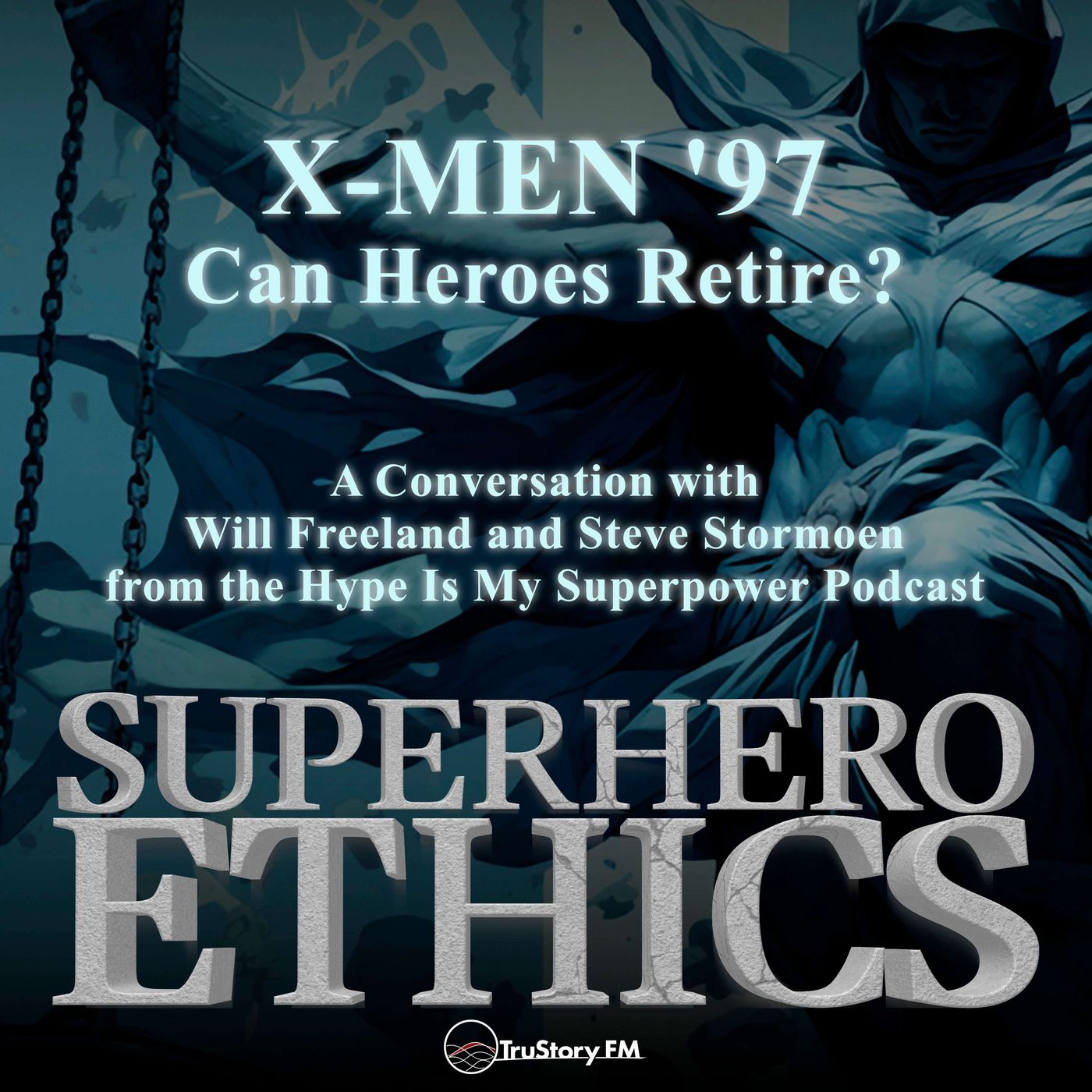
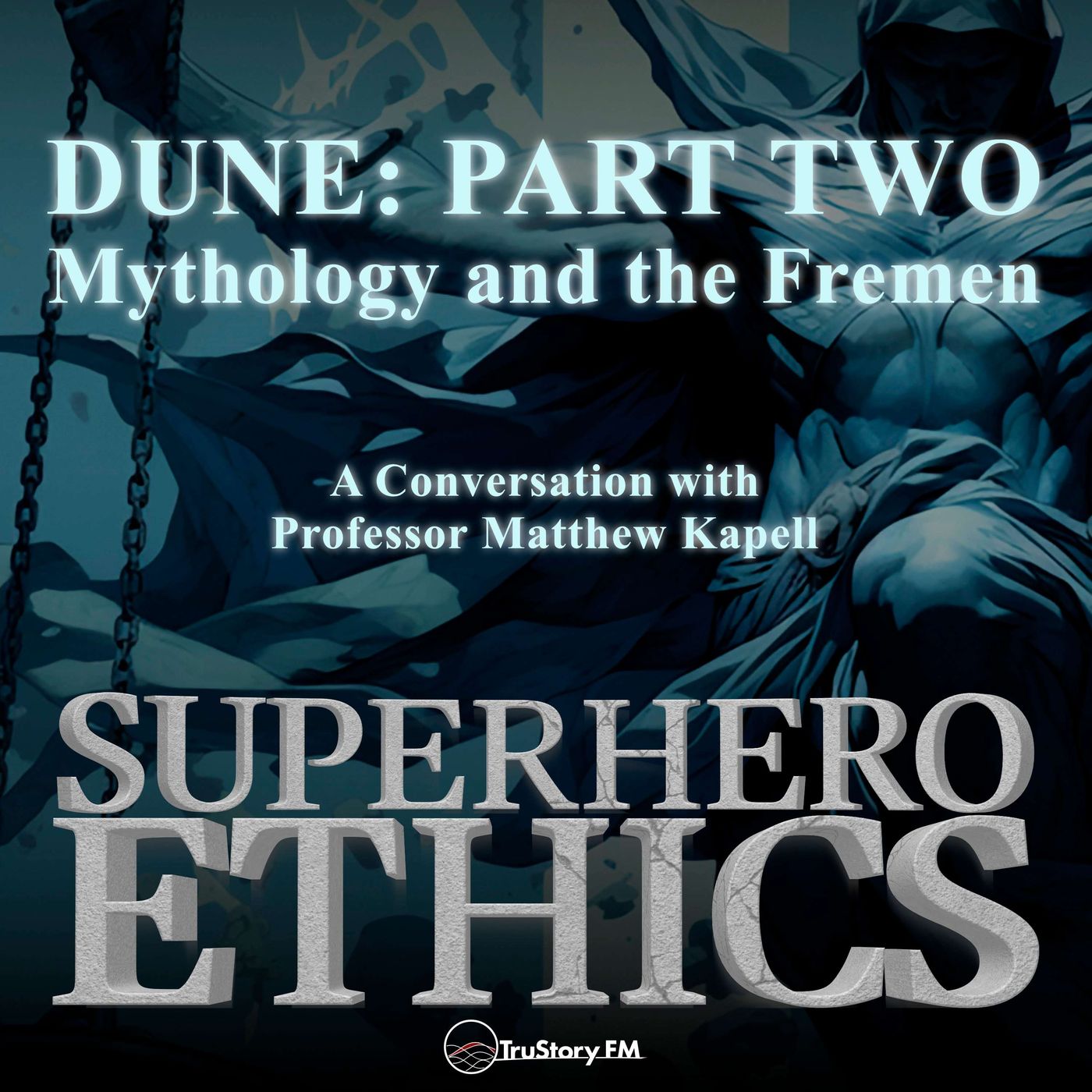
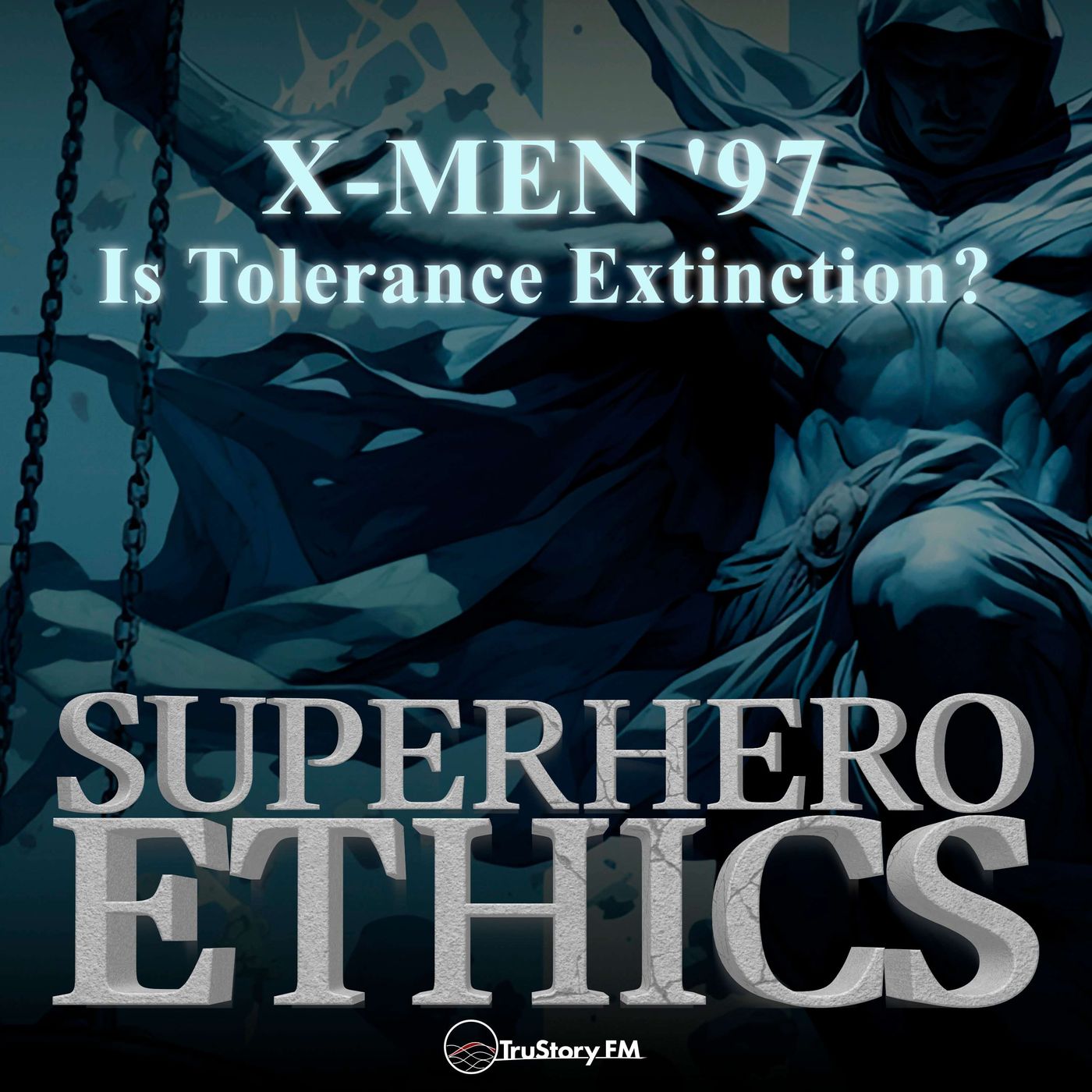
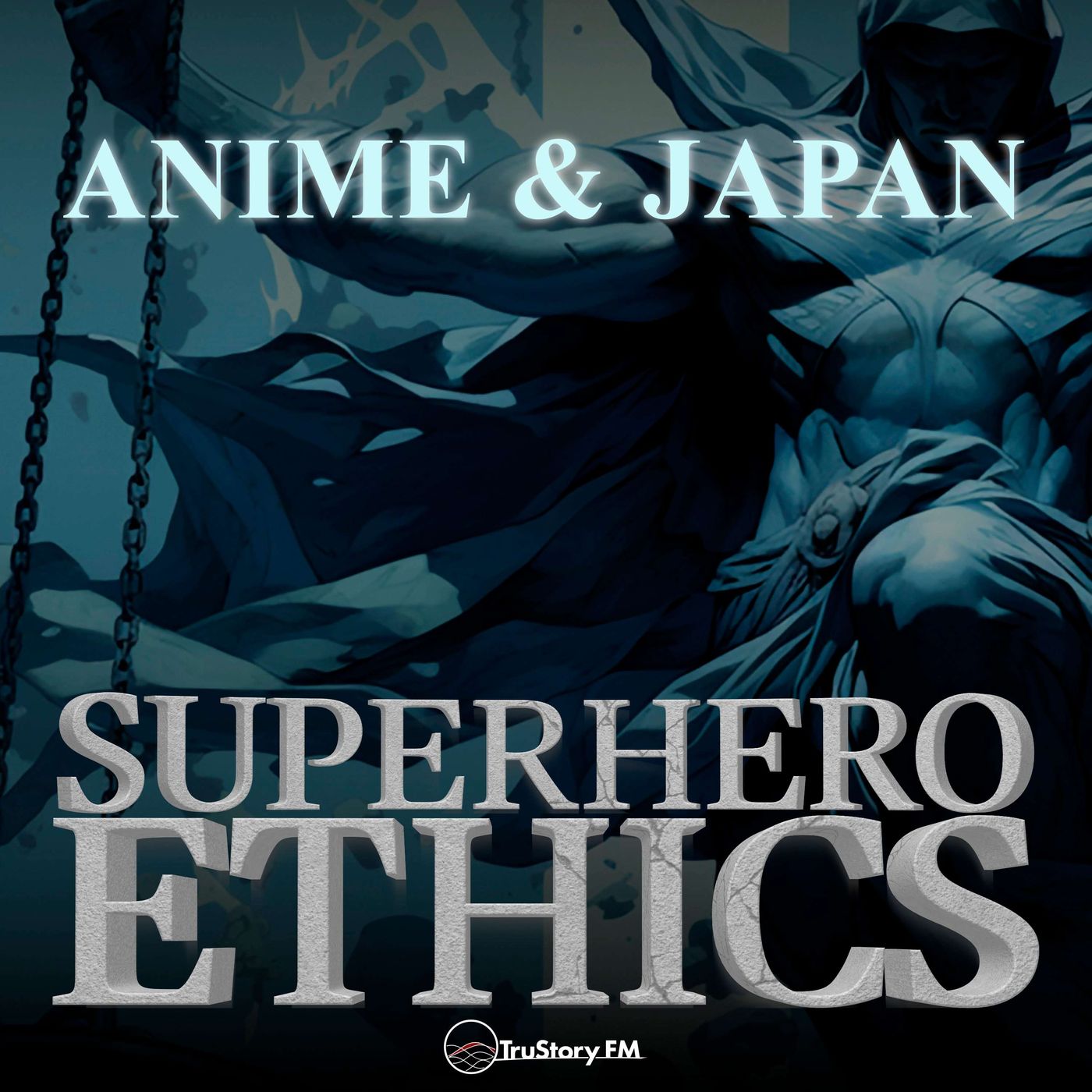
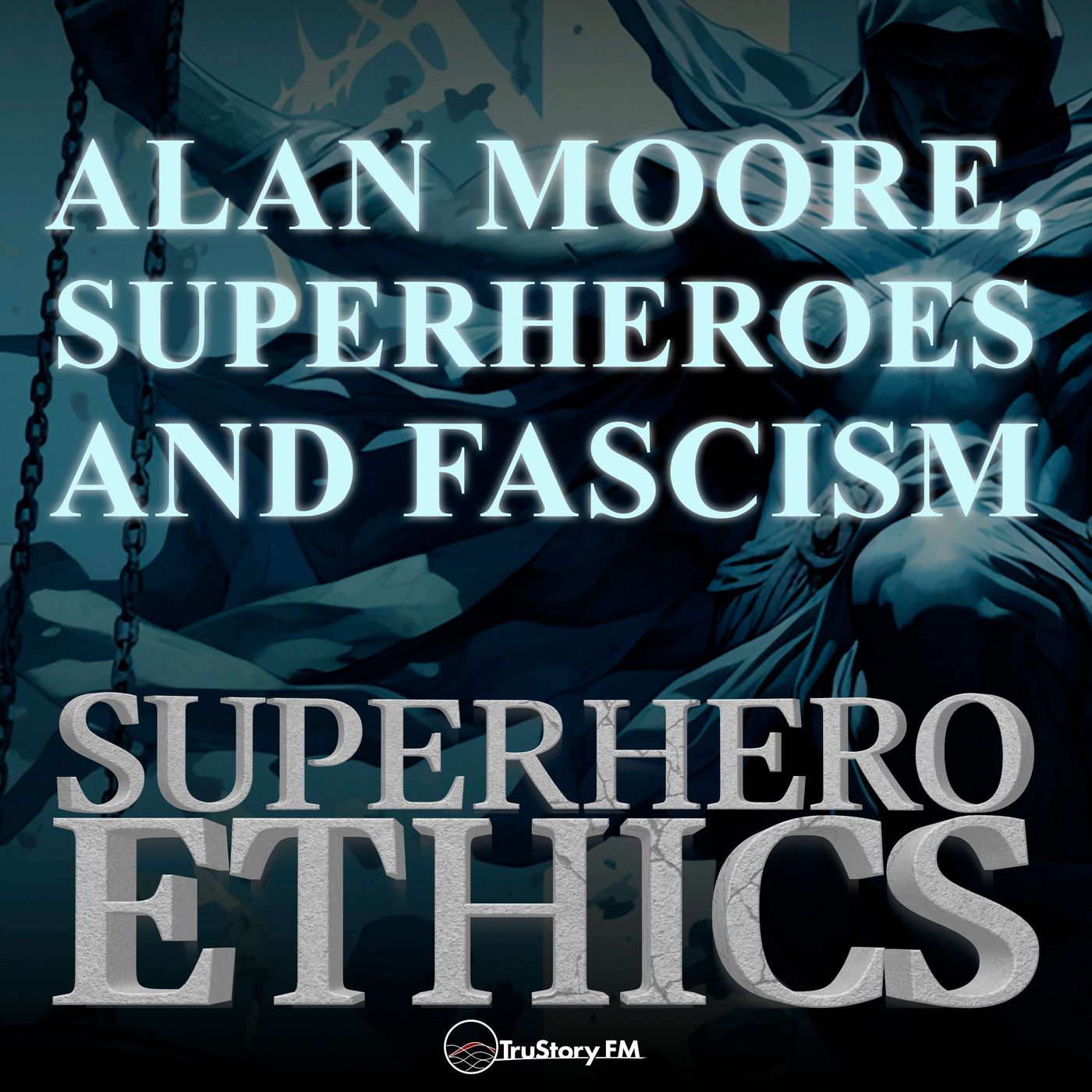
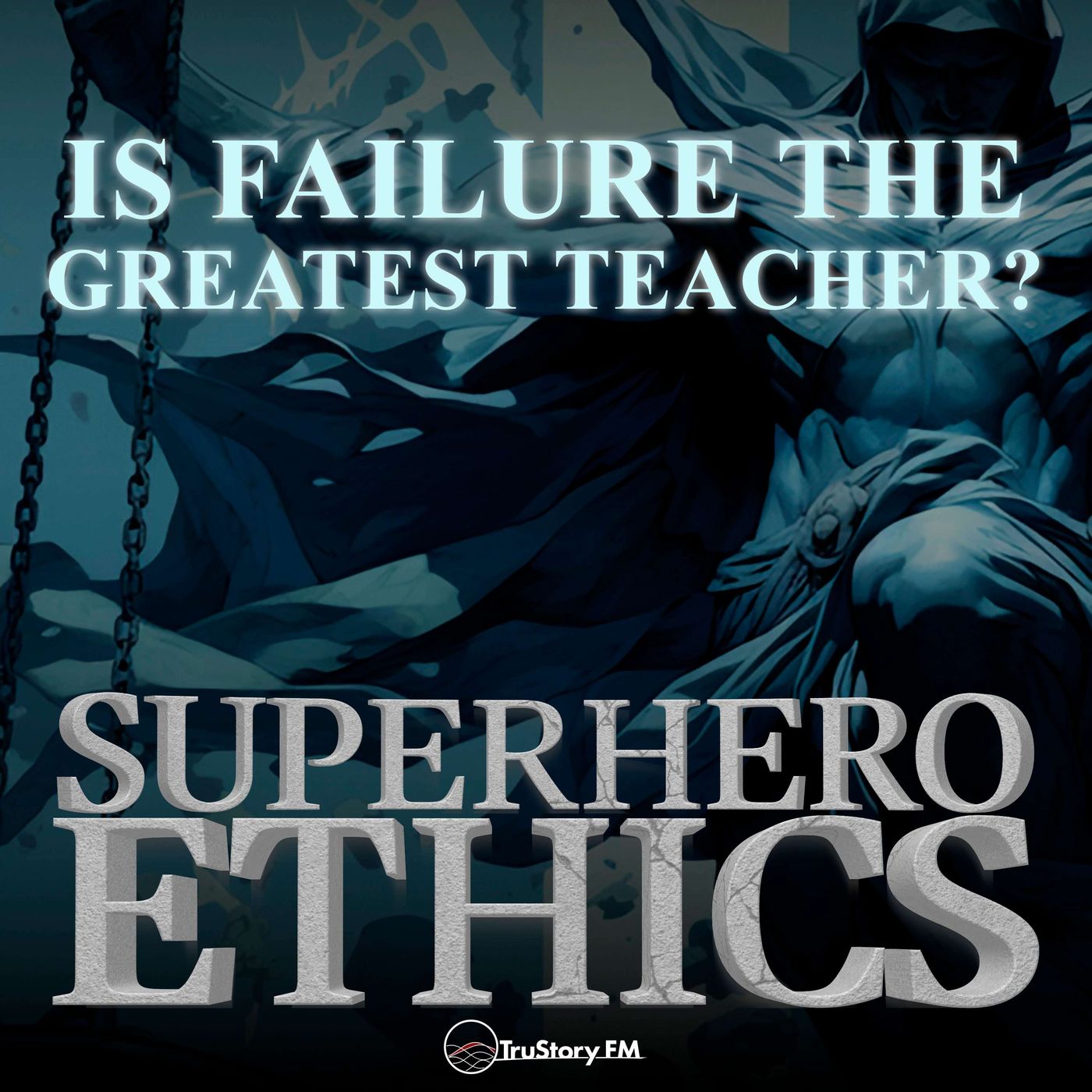
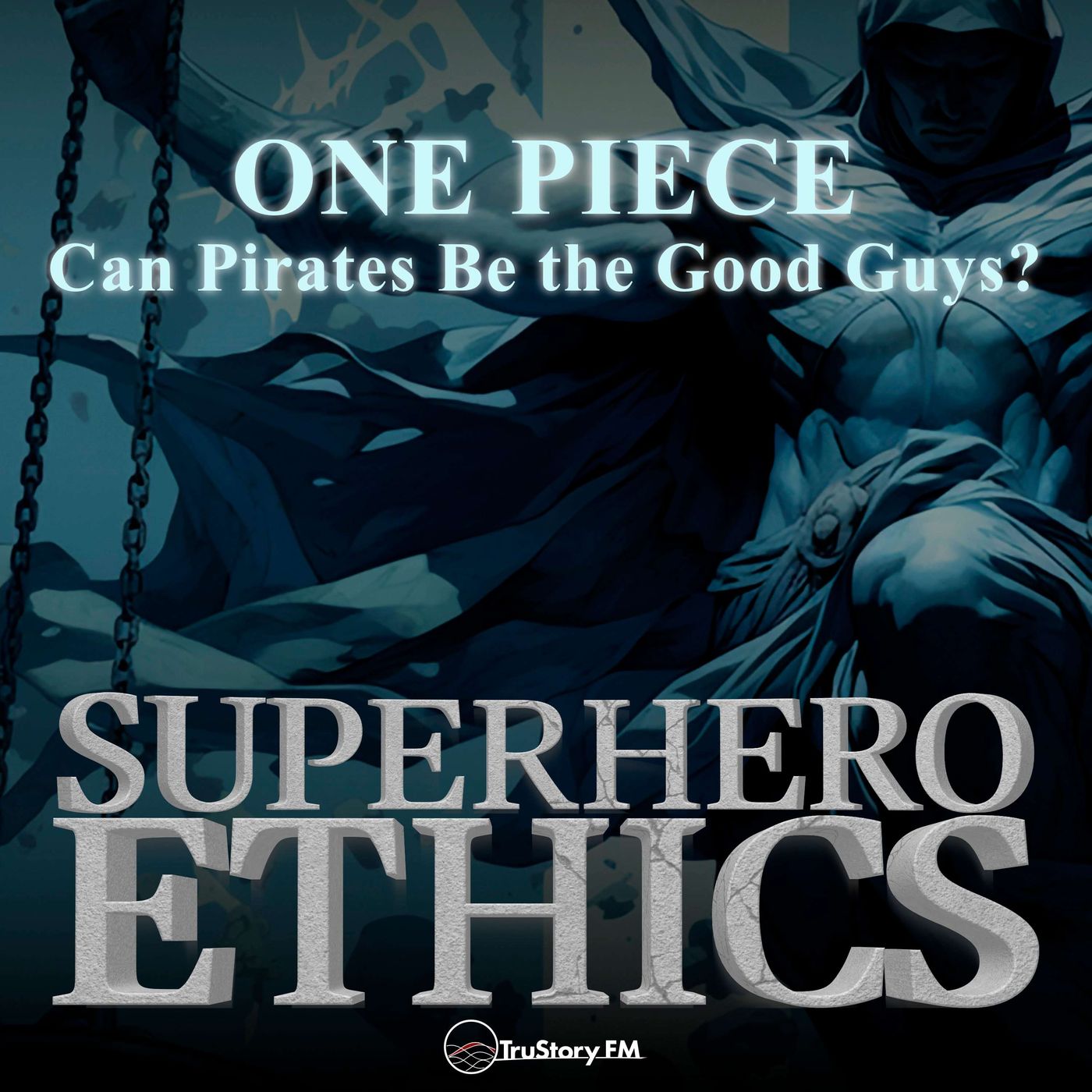
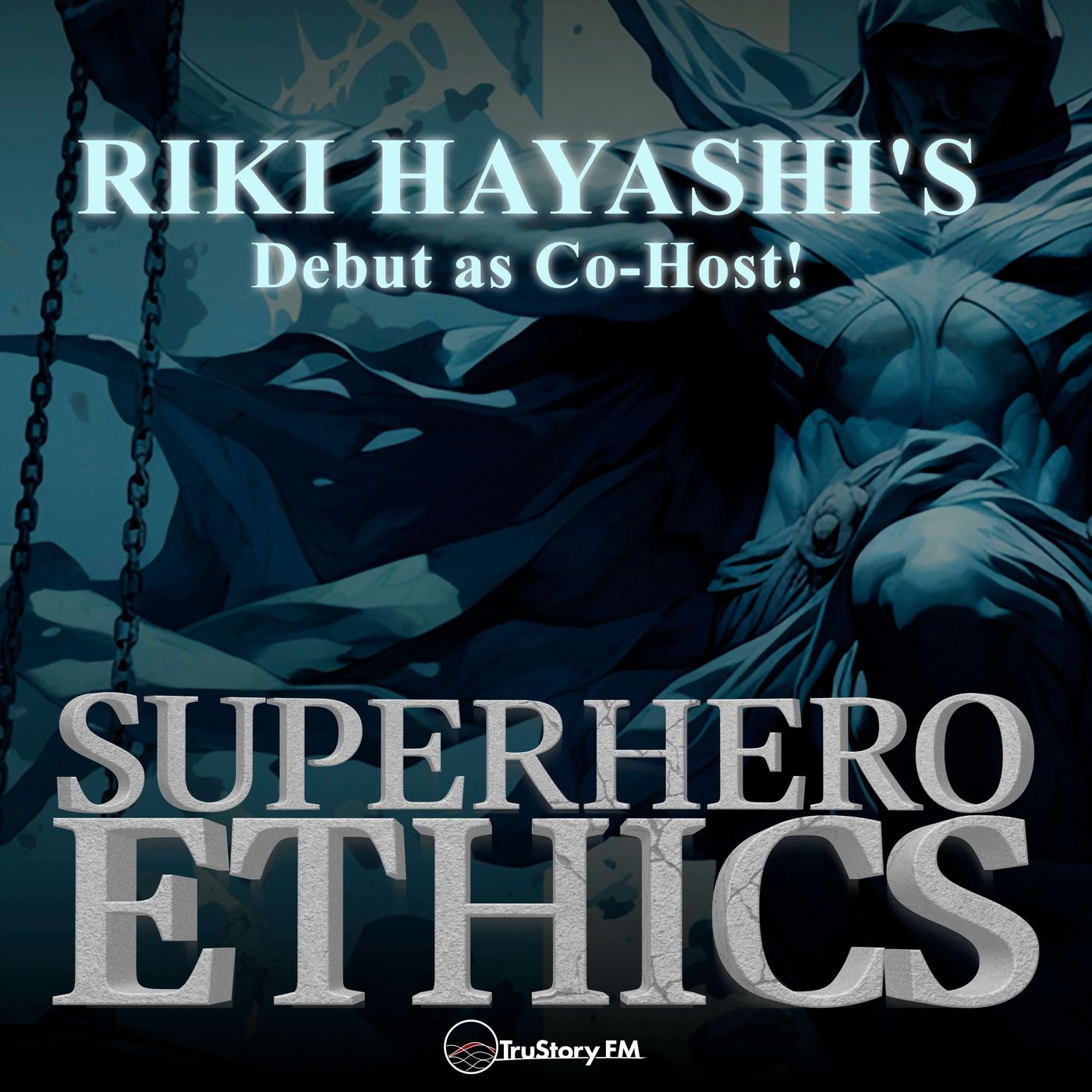
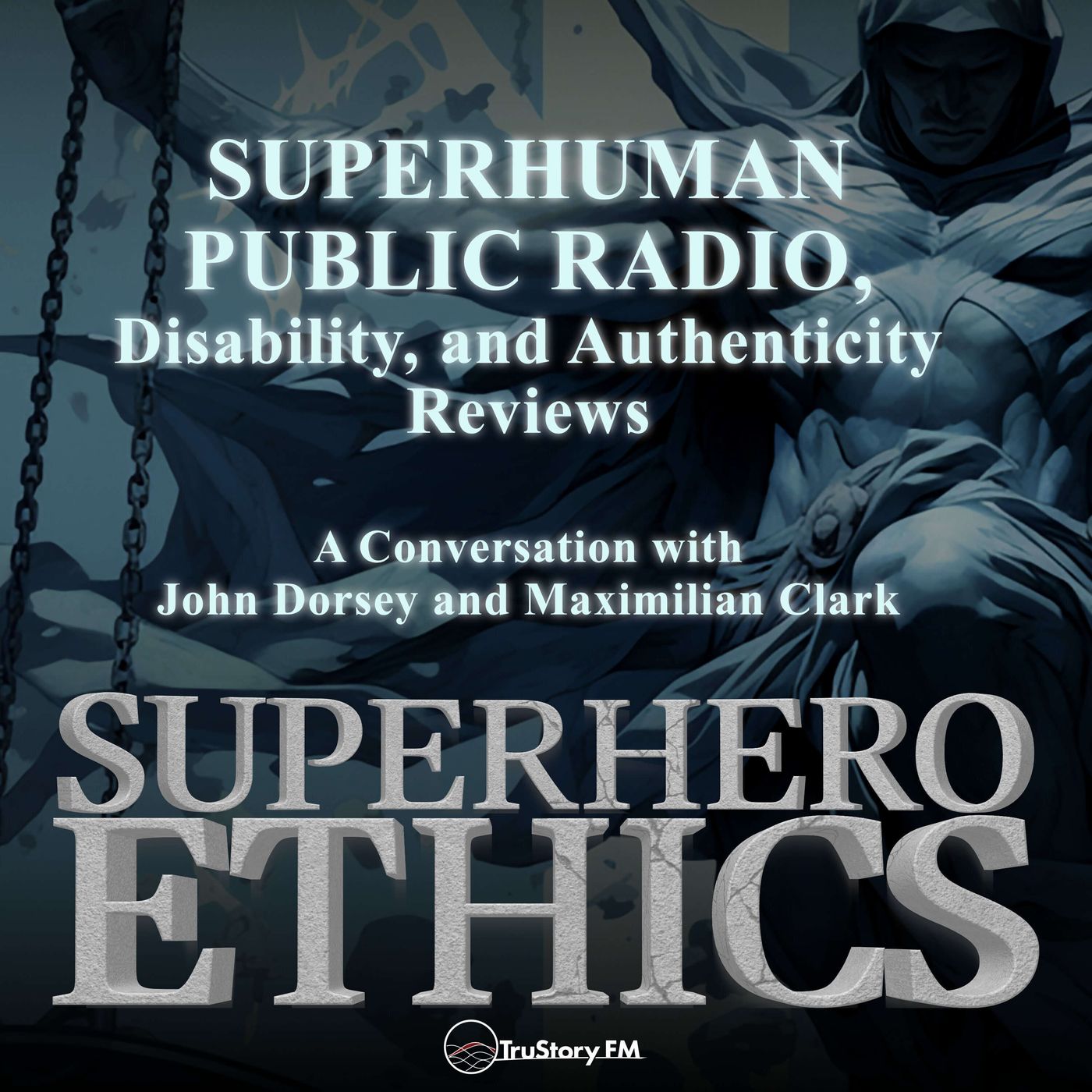
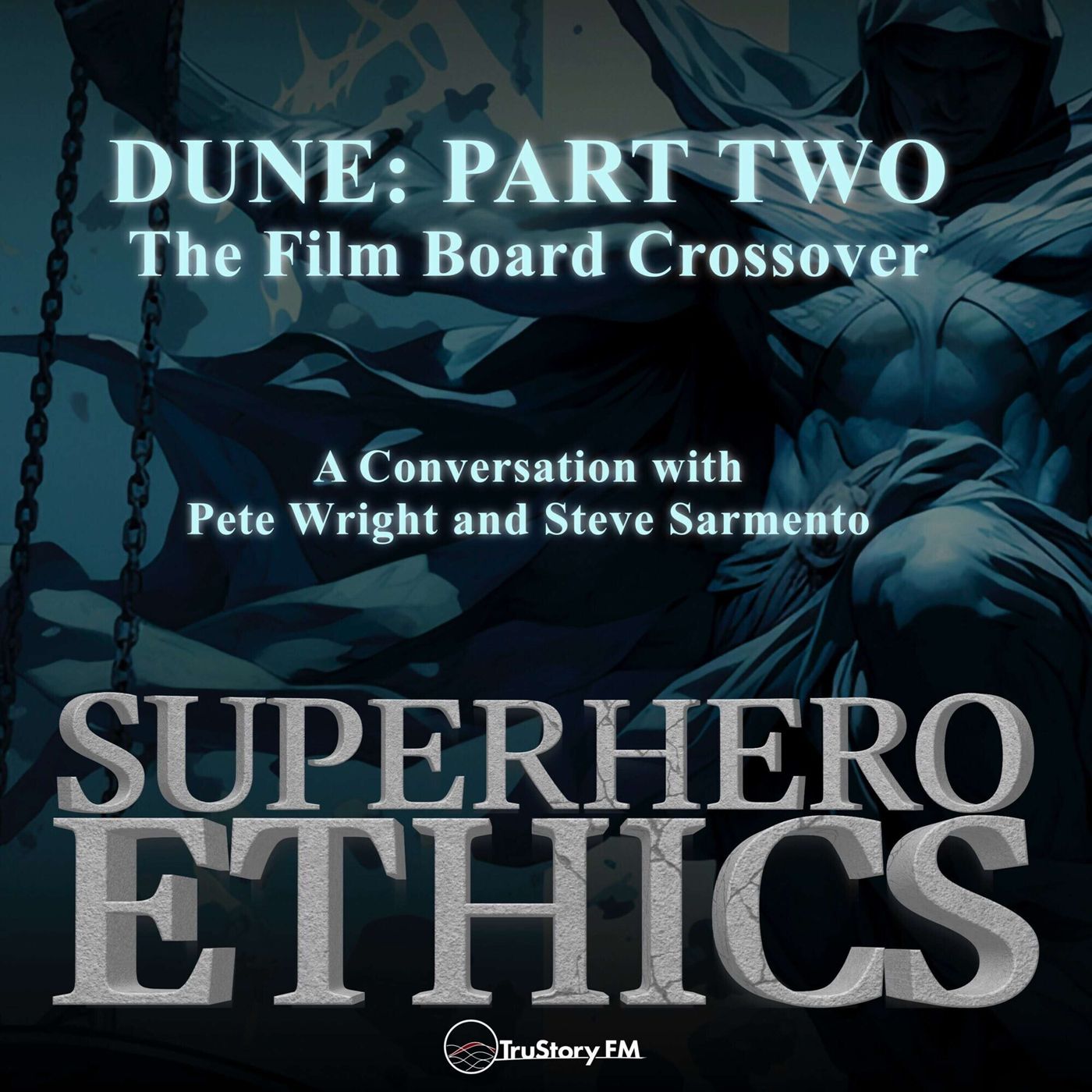
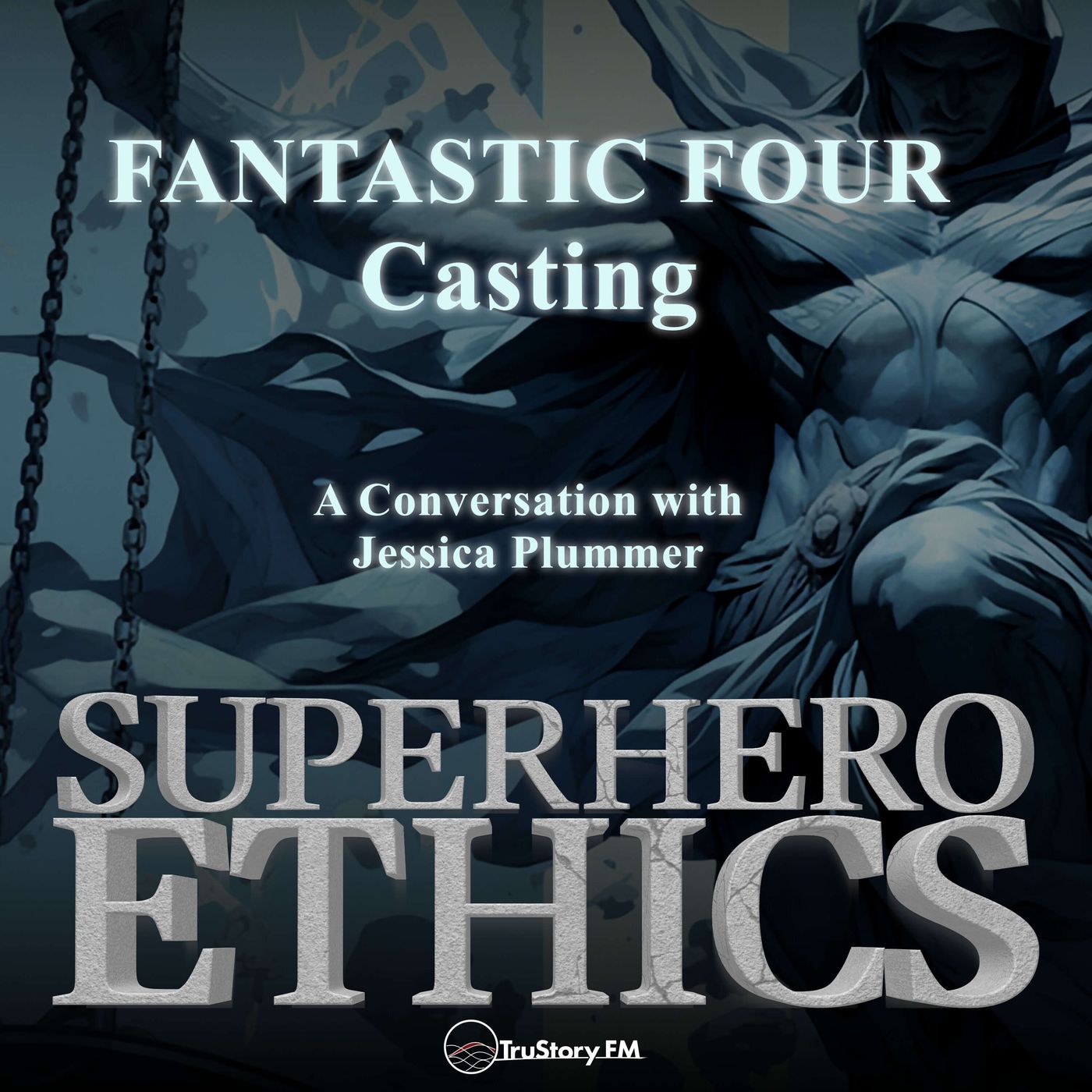
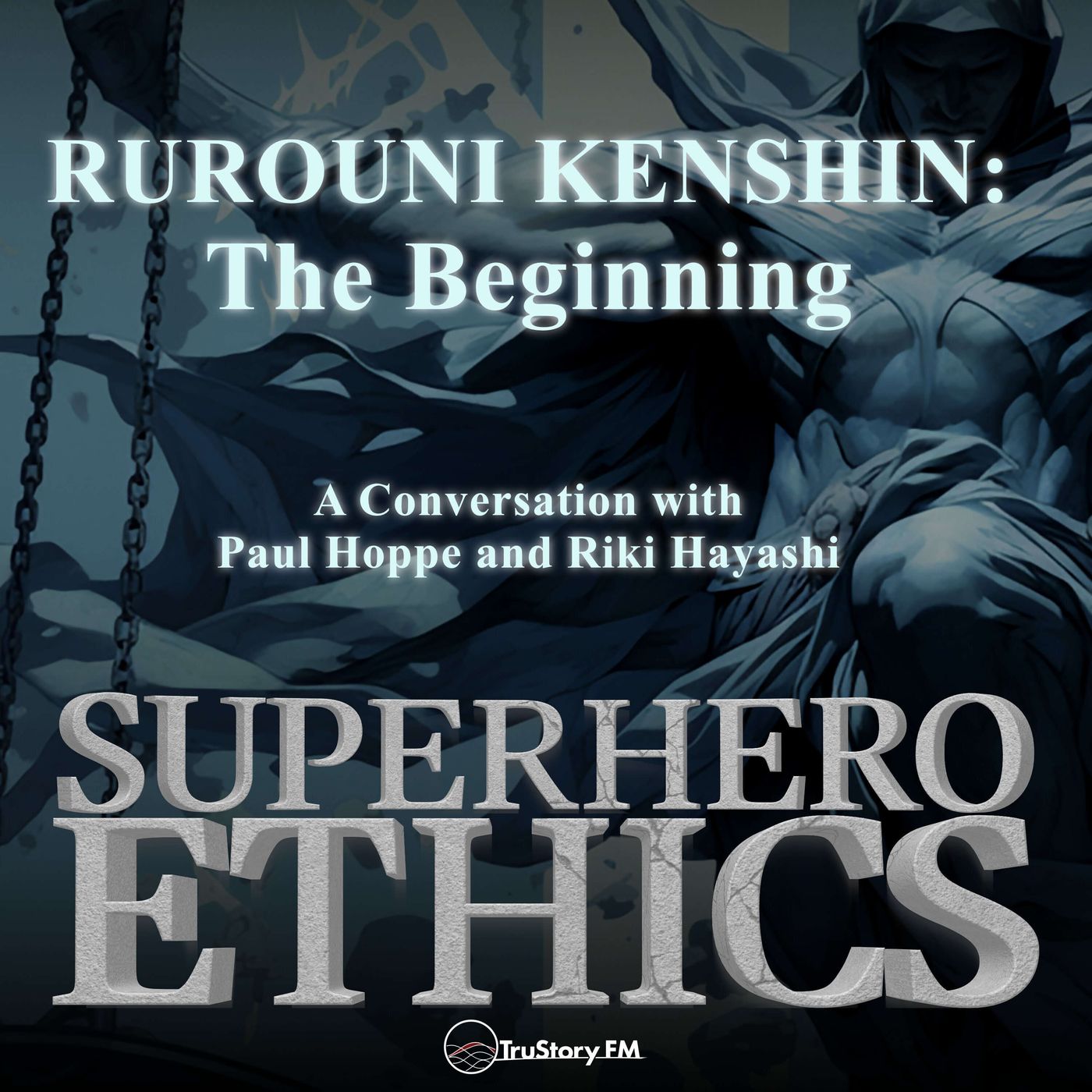
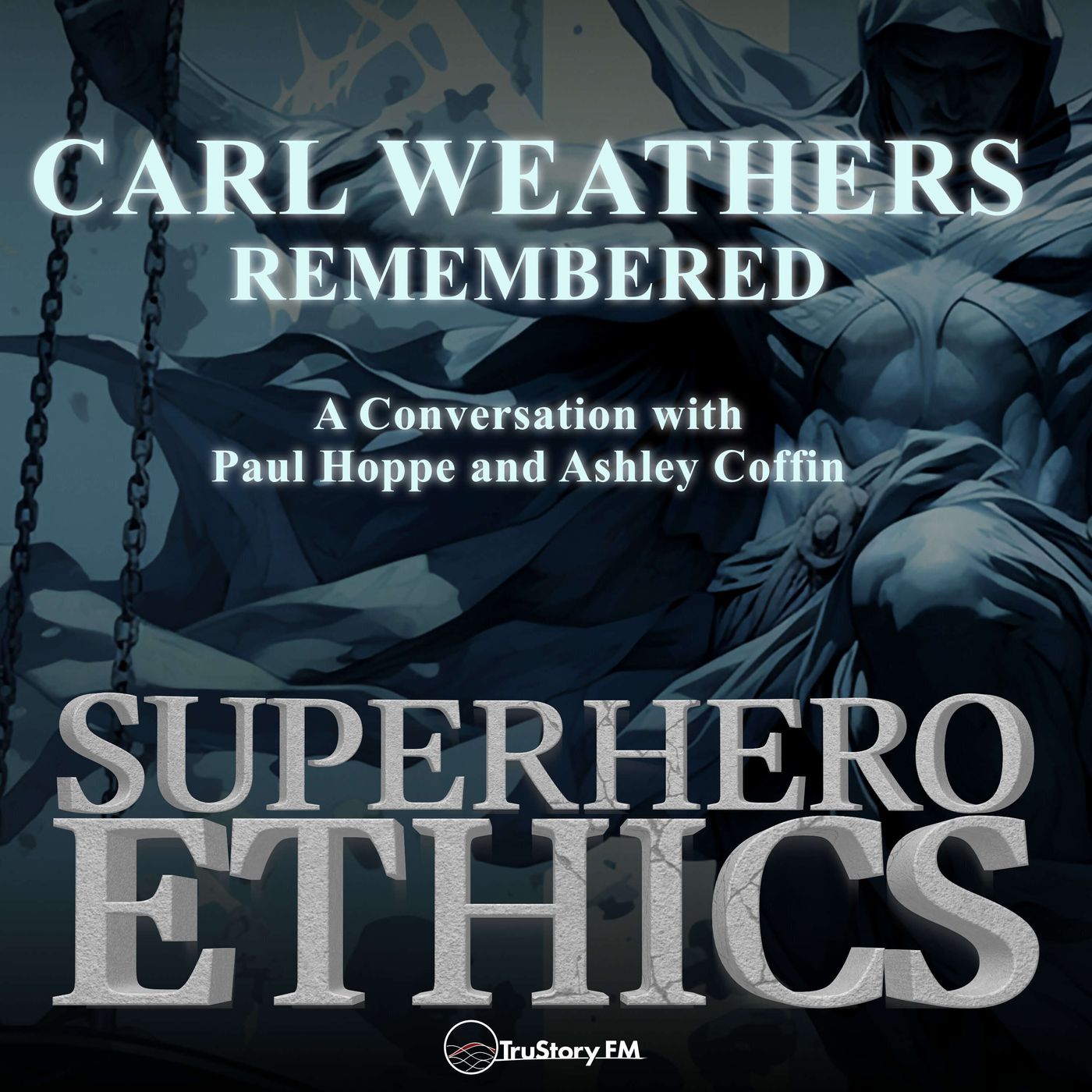
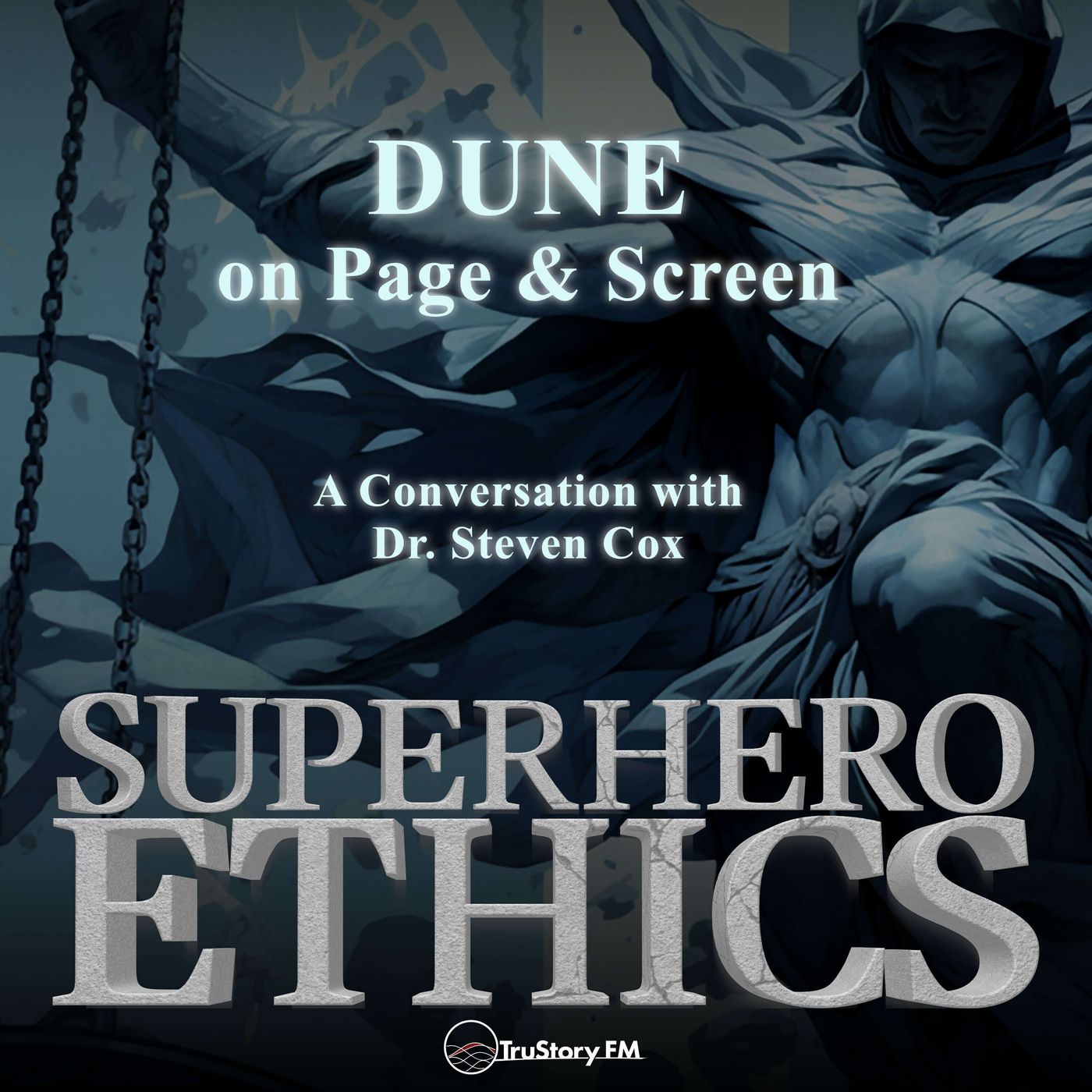
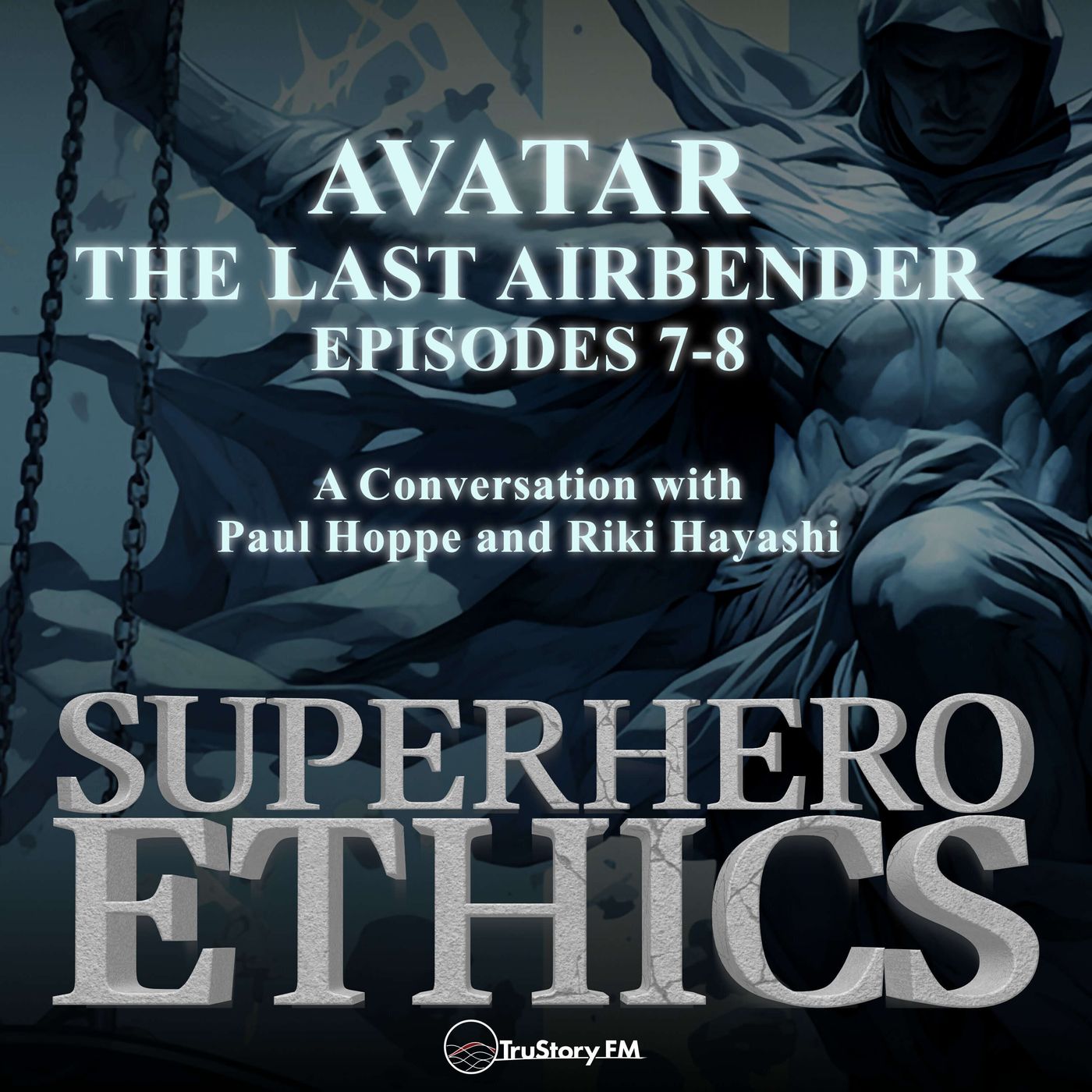
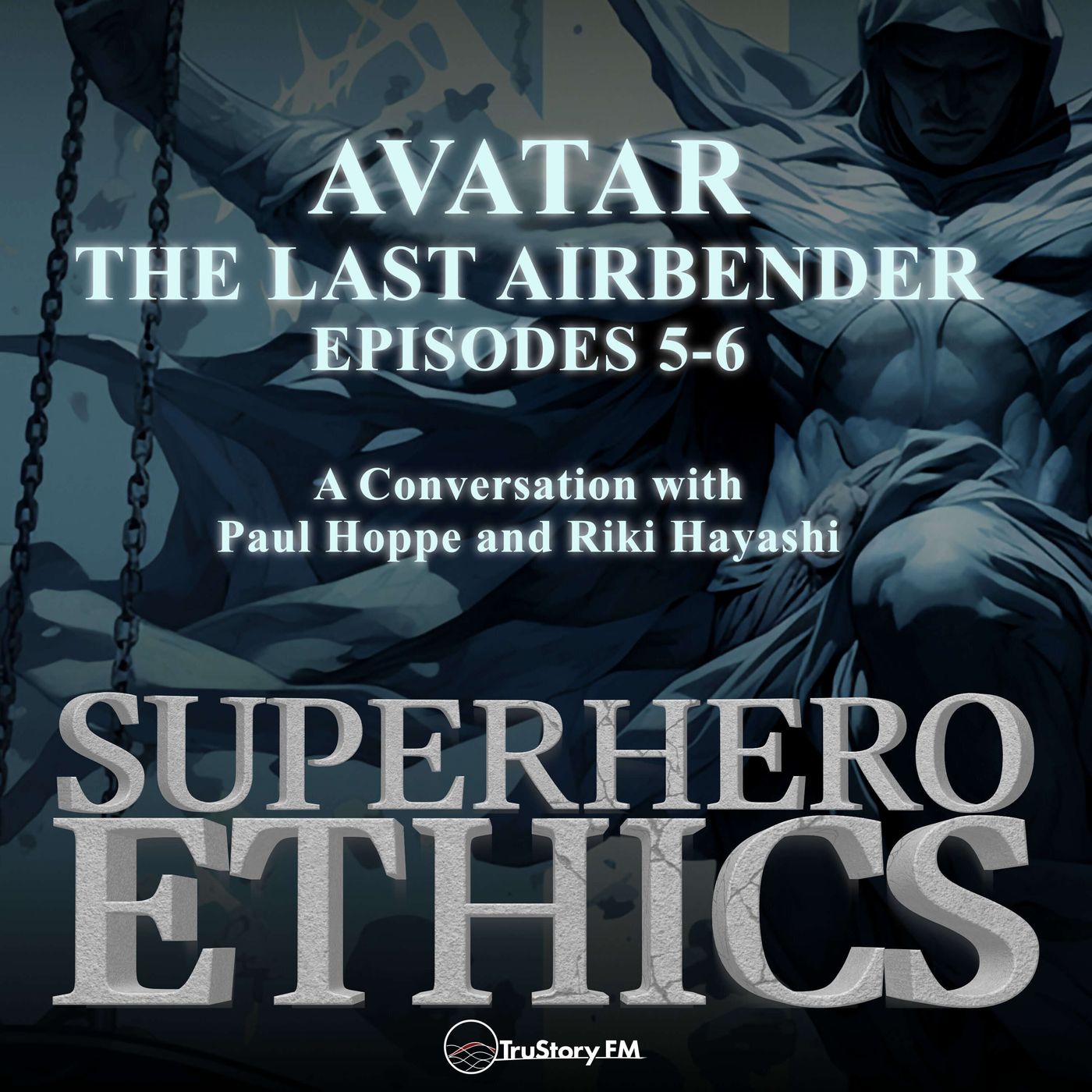
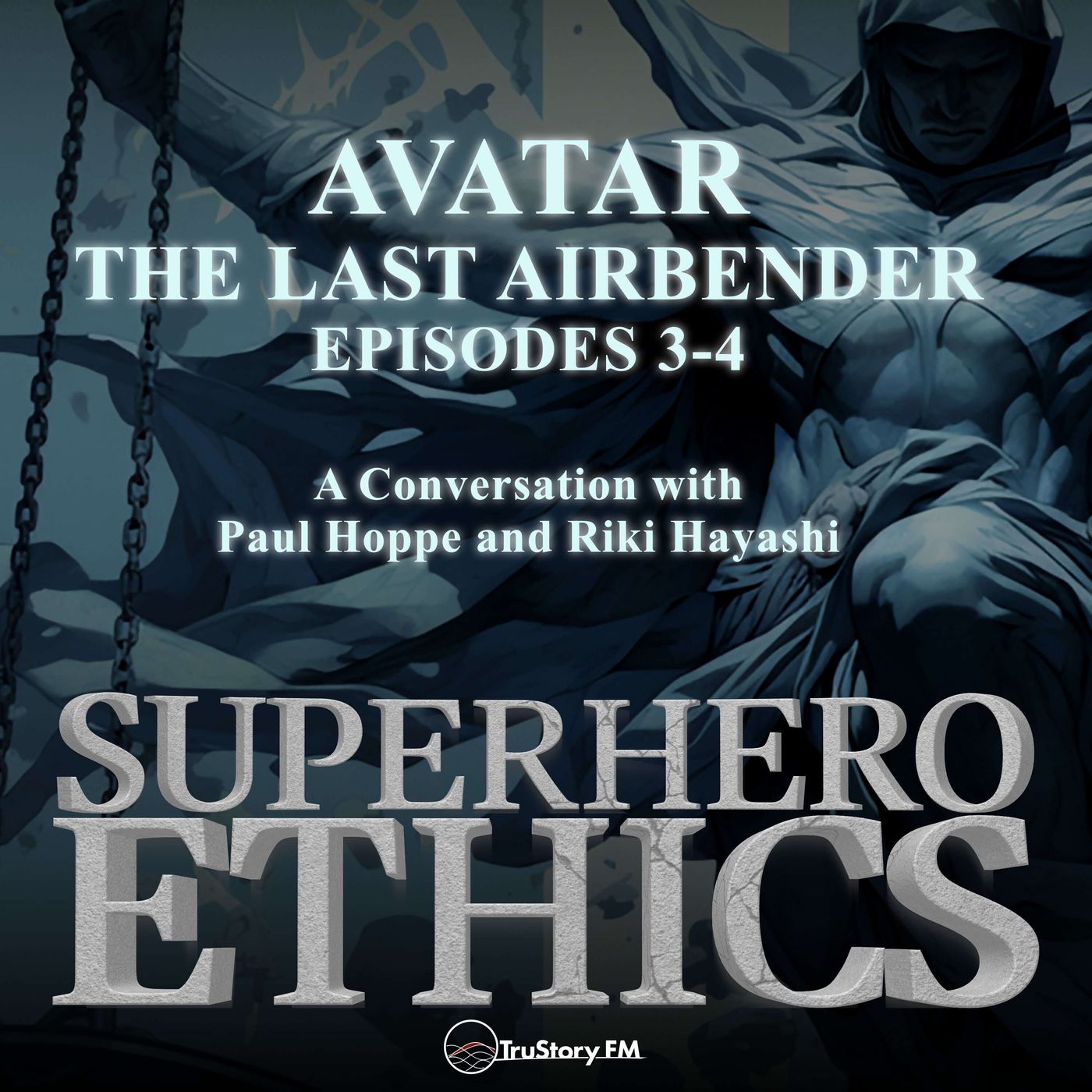
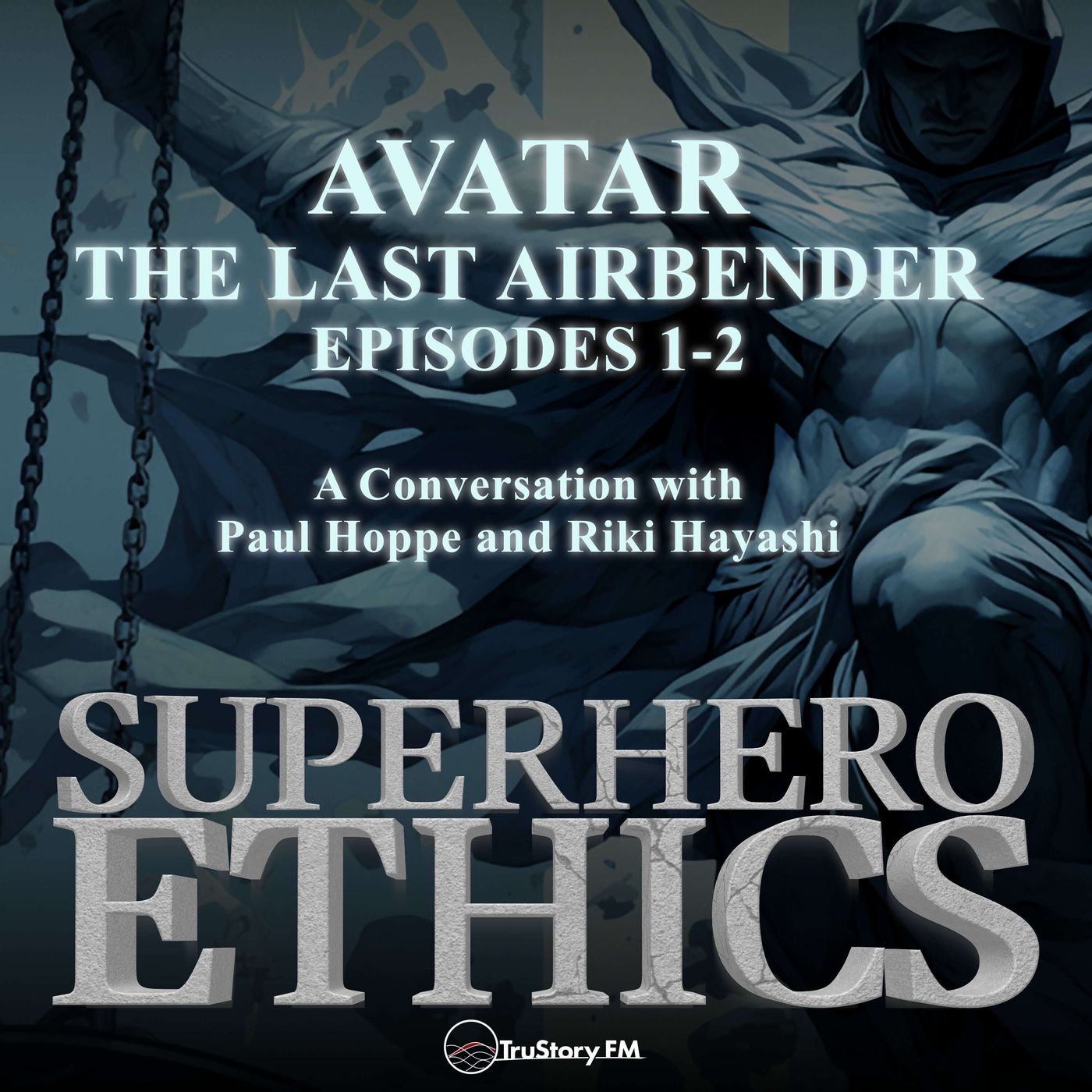
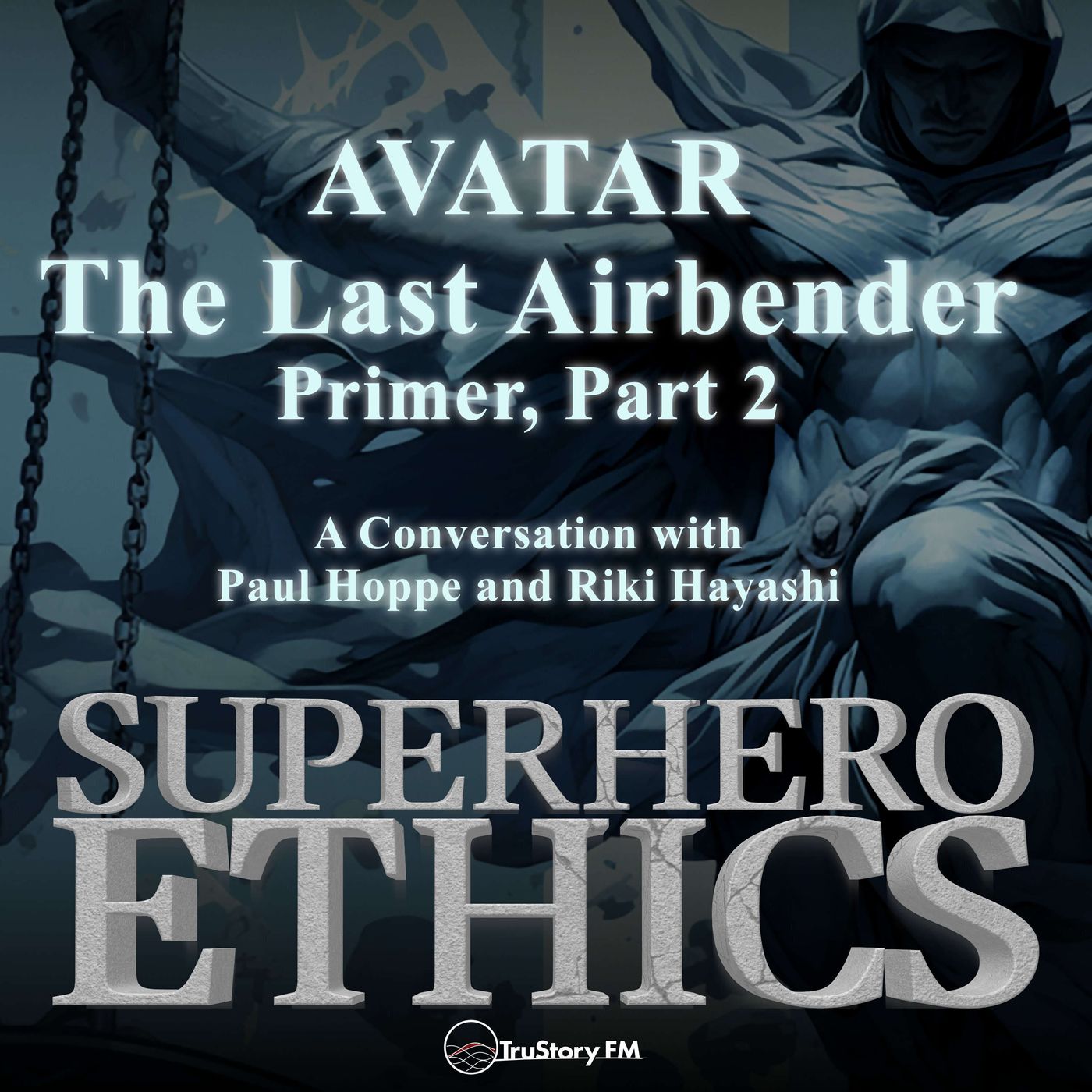
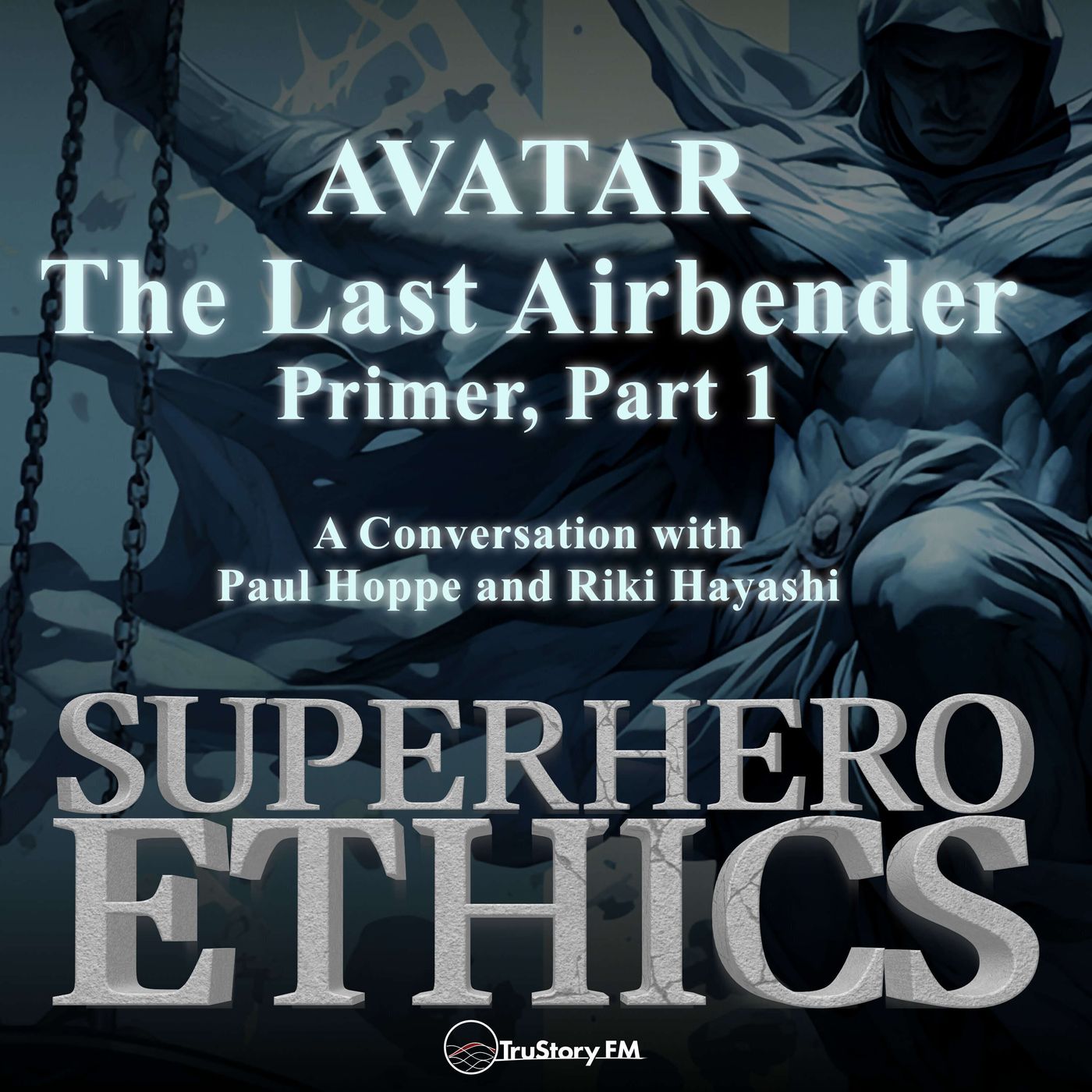



I thought this would be fertile ground for discussion. Then the first comment of the first episode I listened to (Cobra Kai s.3) consists of the hosts complaining about the race of the actors. Gave it another chance (WW84), didn't get any better. "Ethical" discussions are very thin, when they exist at all. Do not recommend.